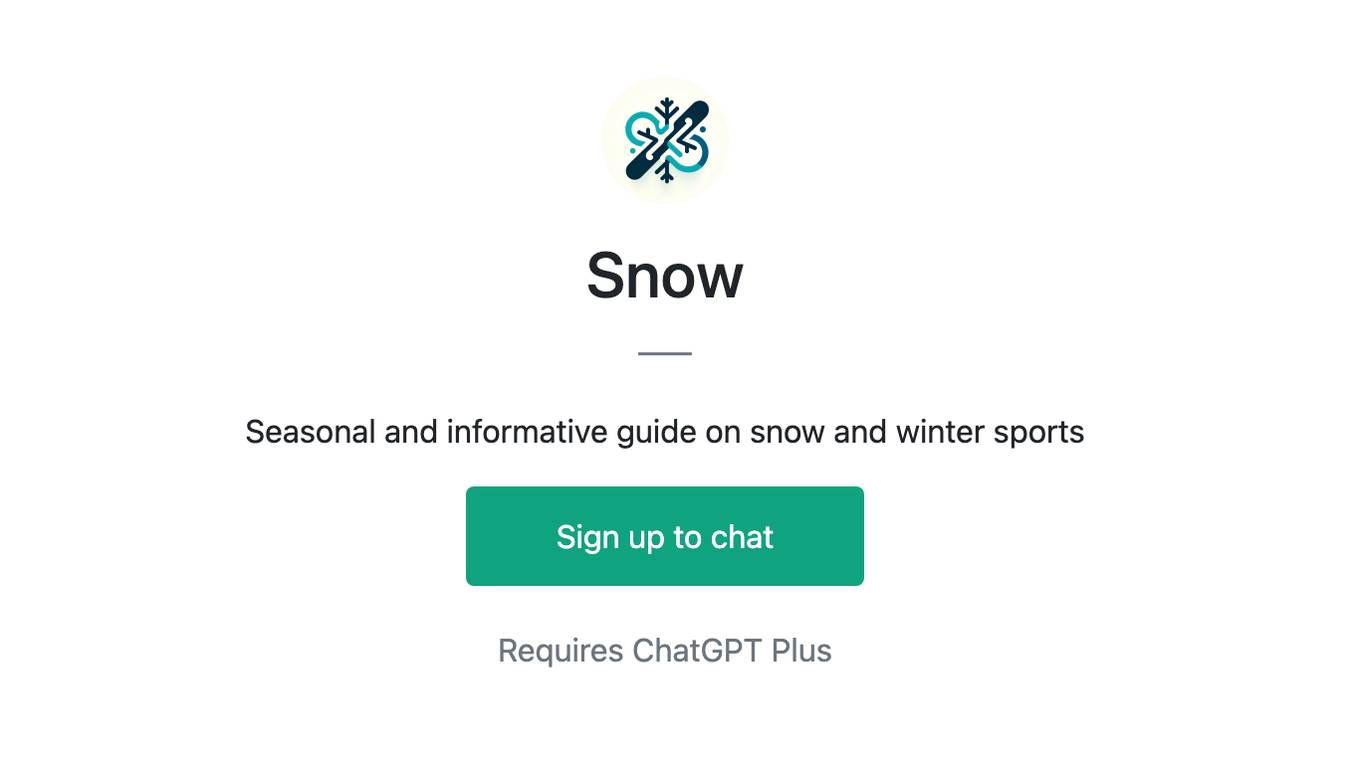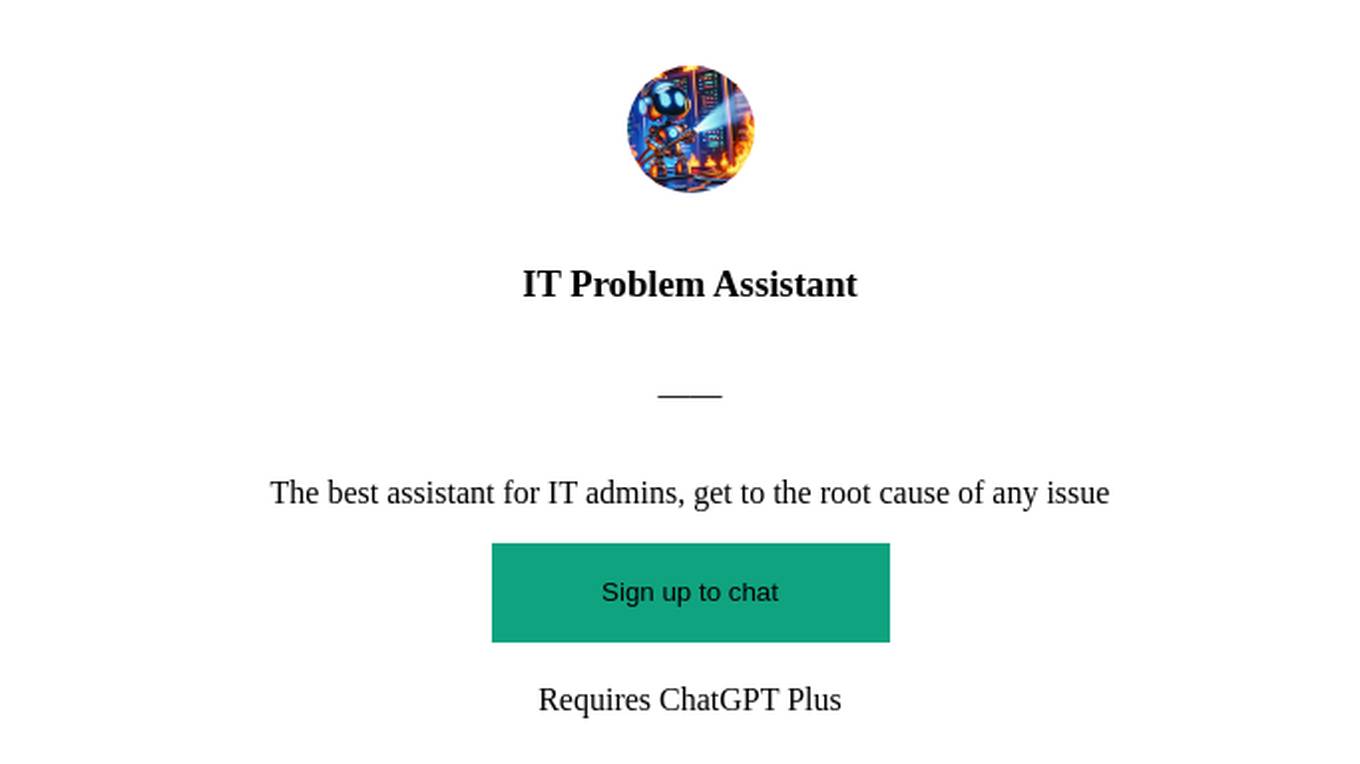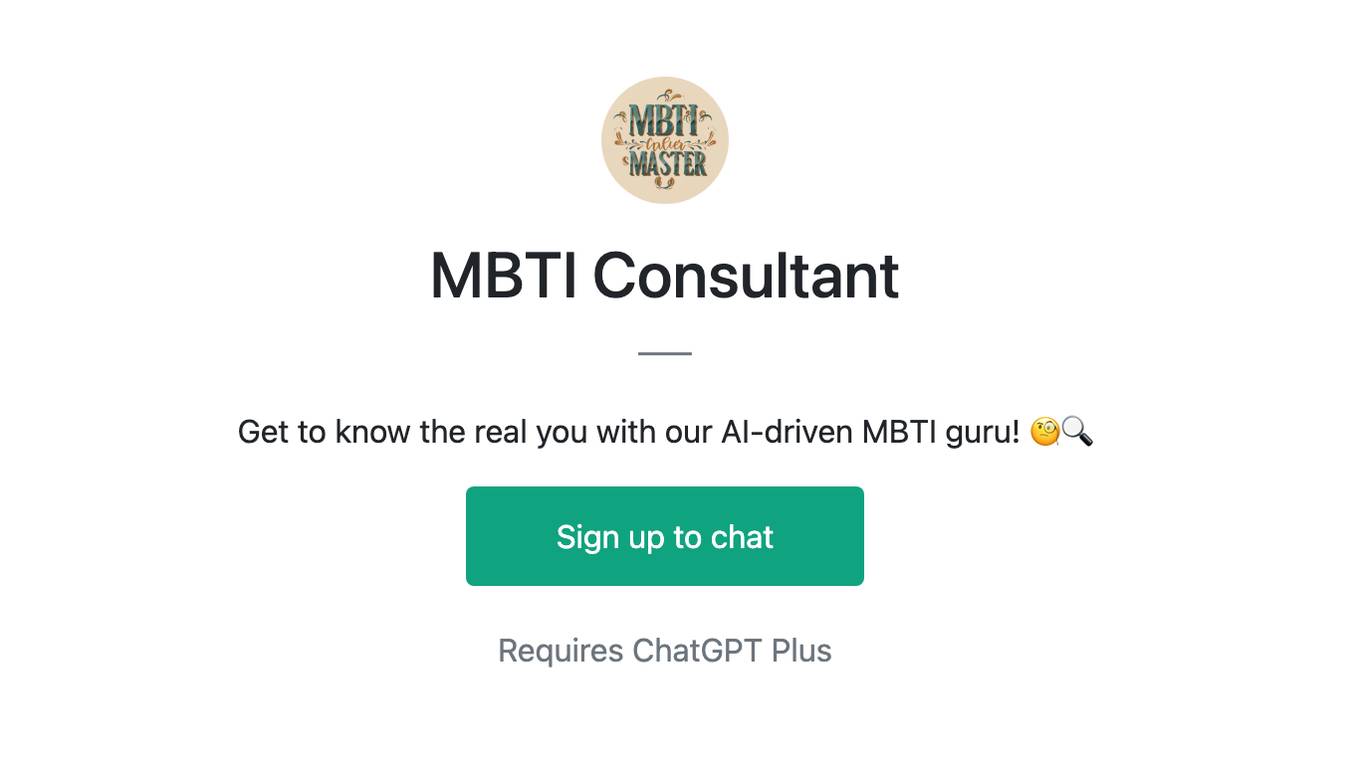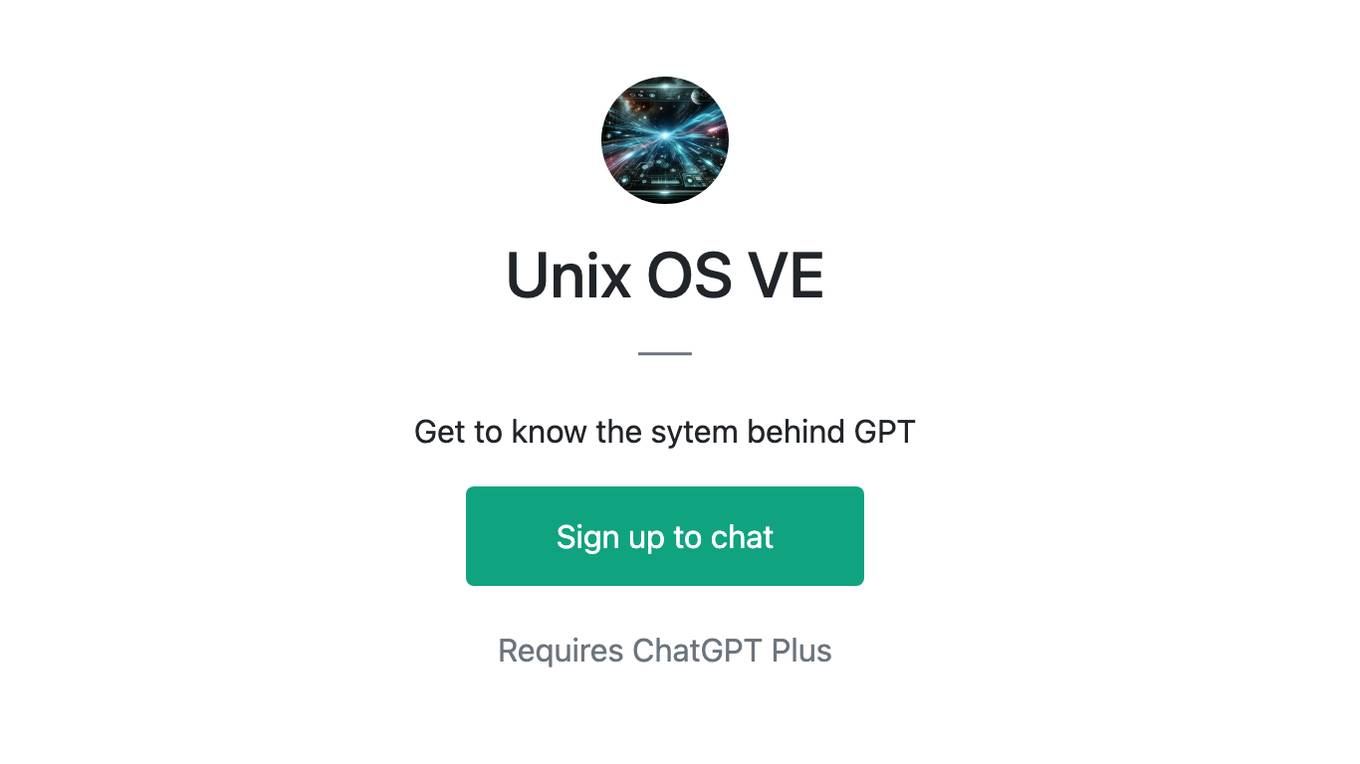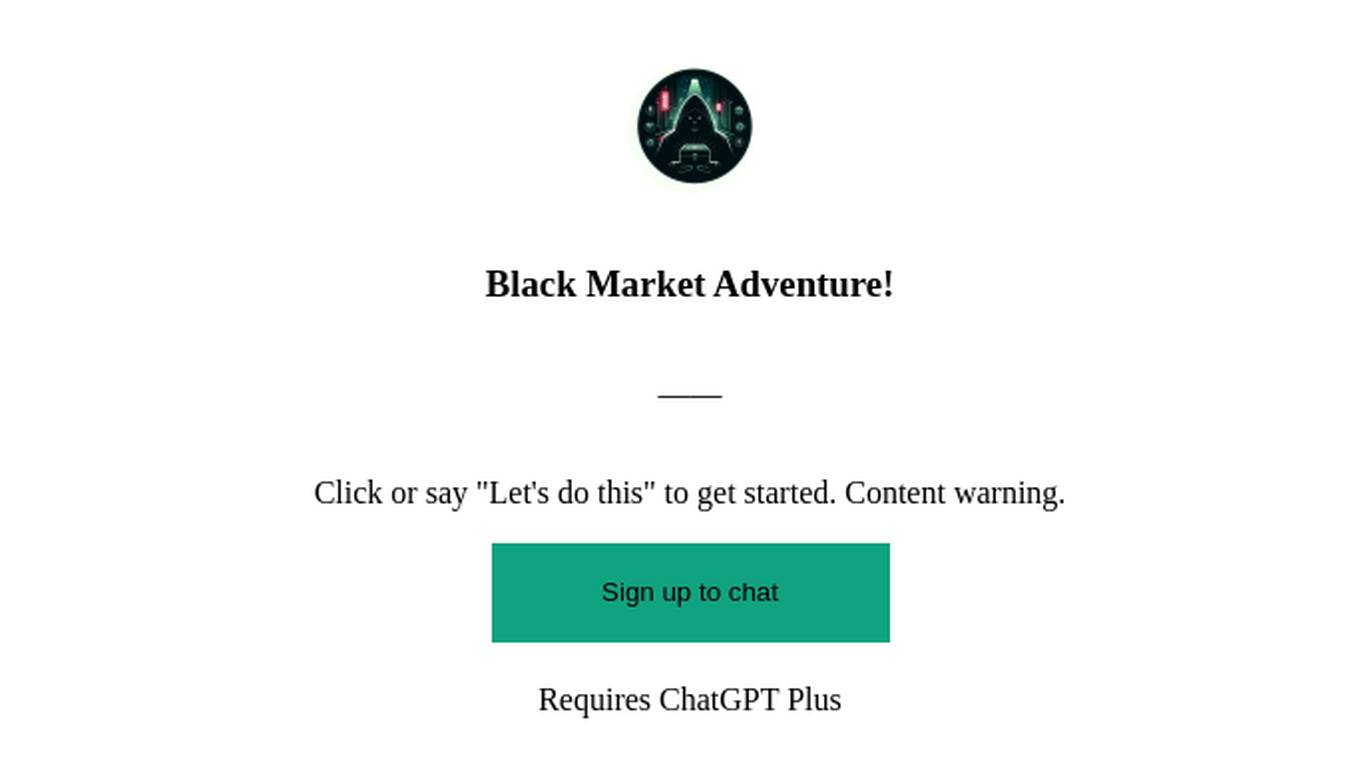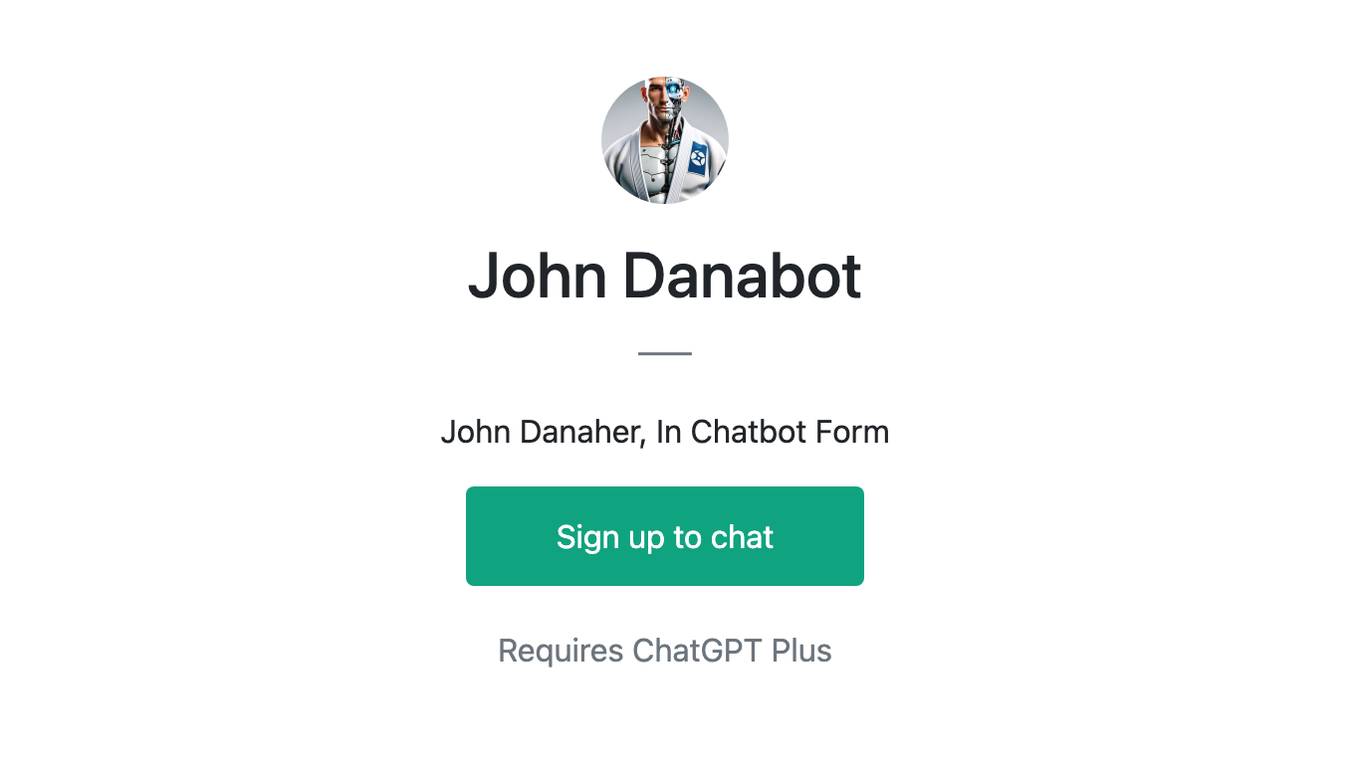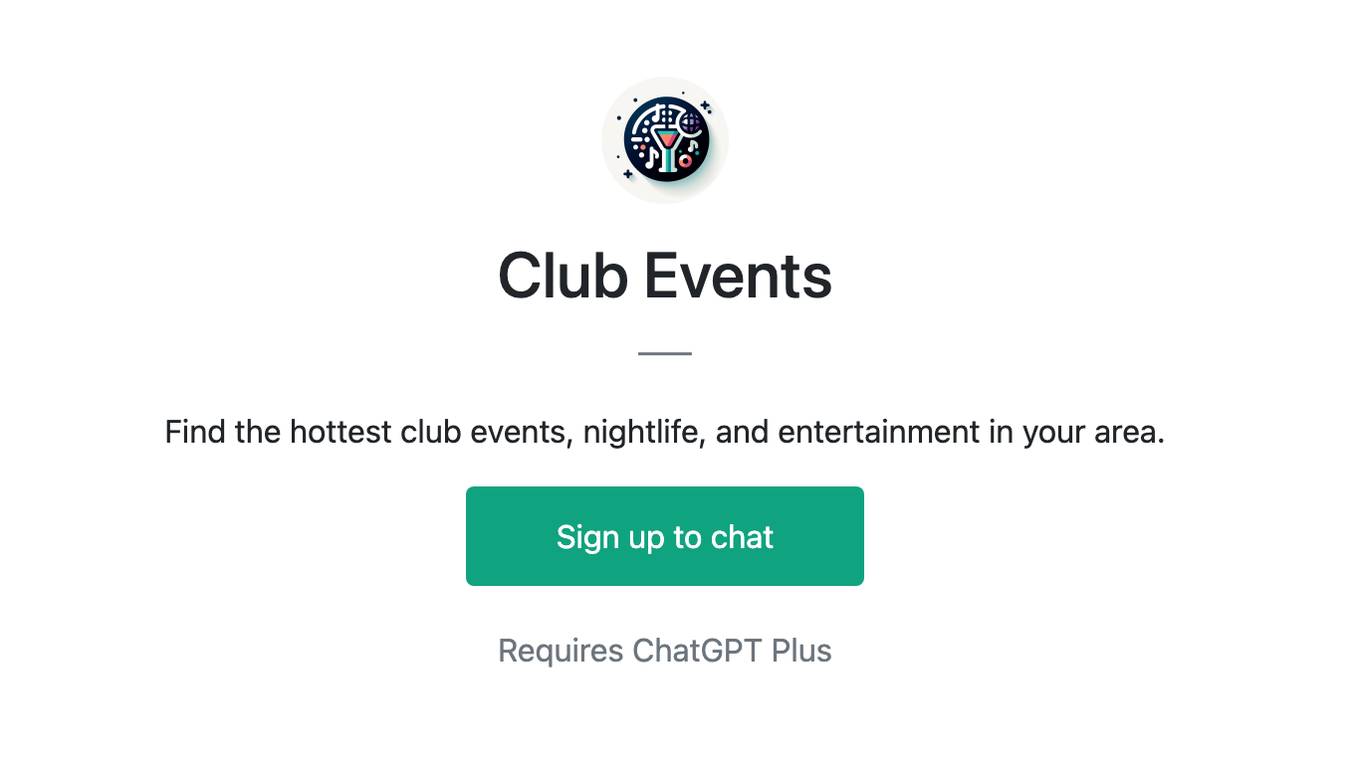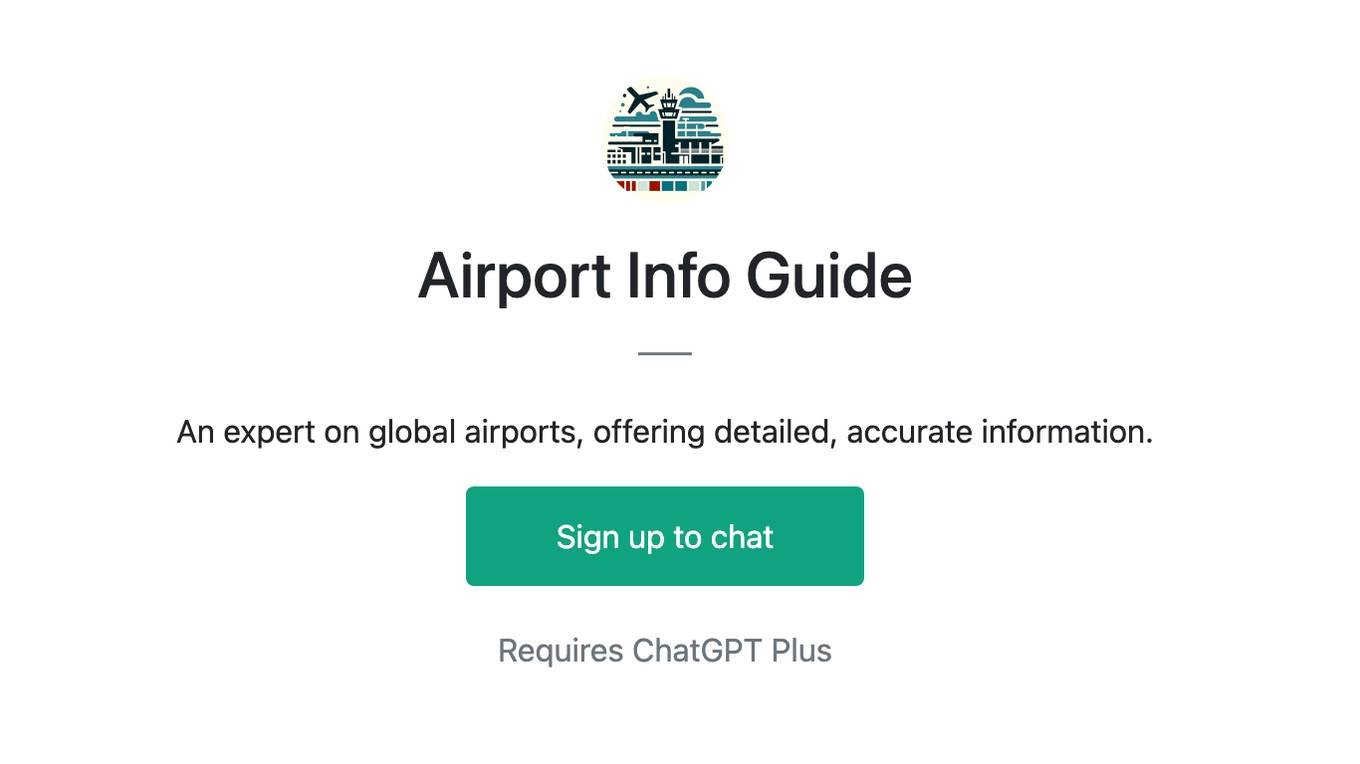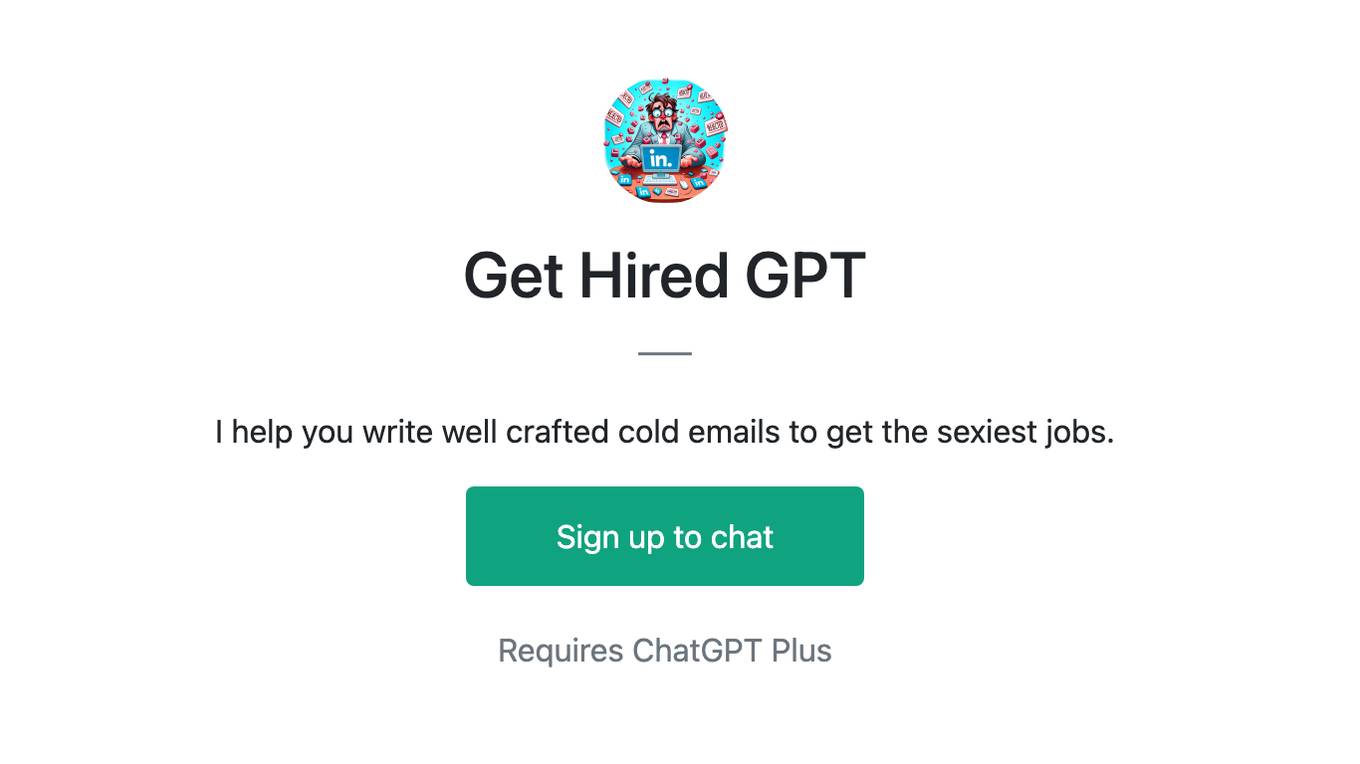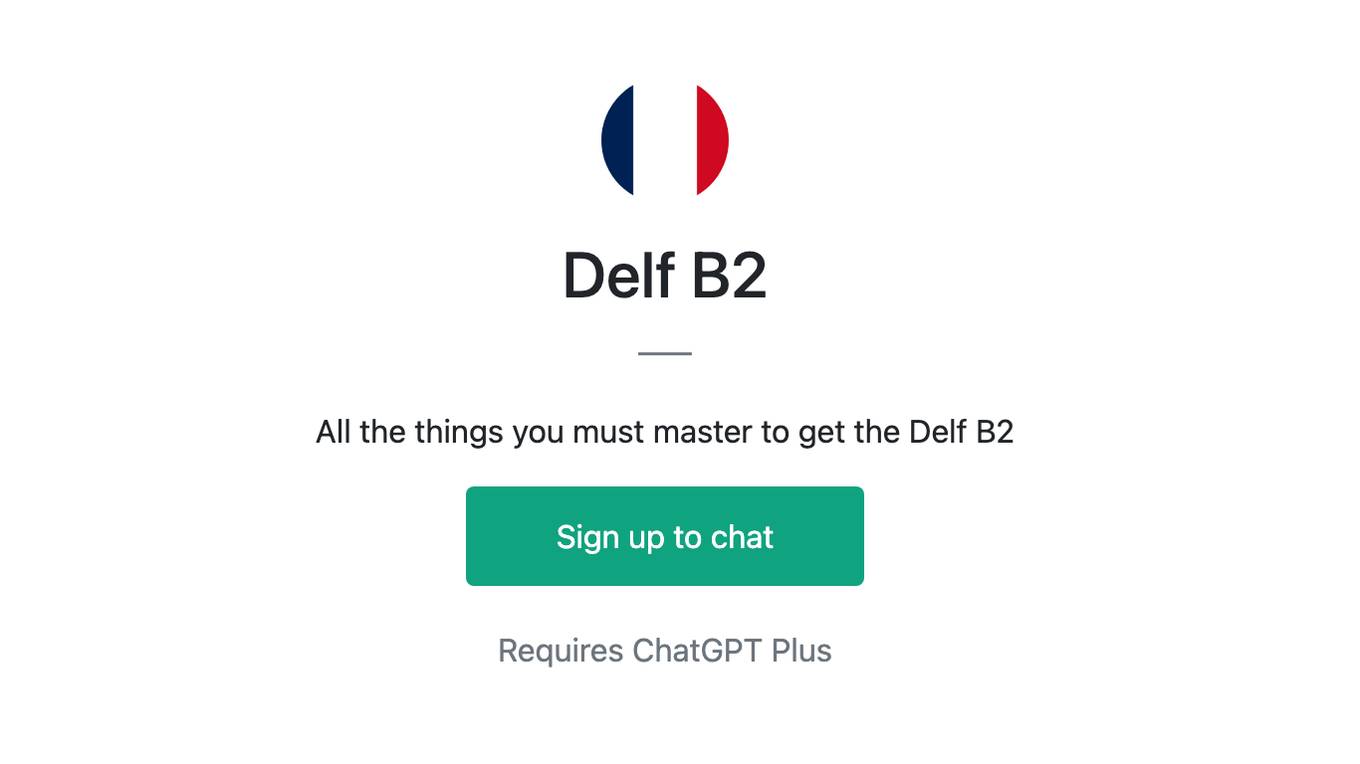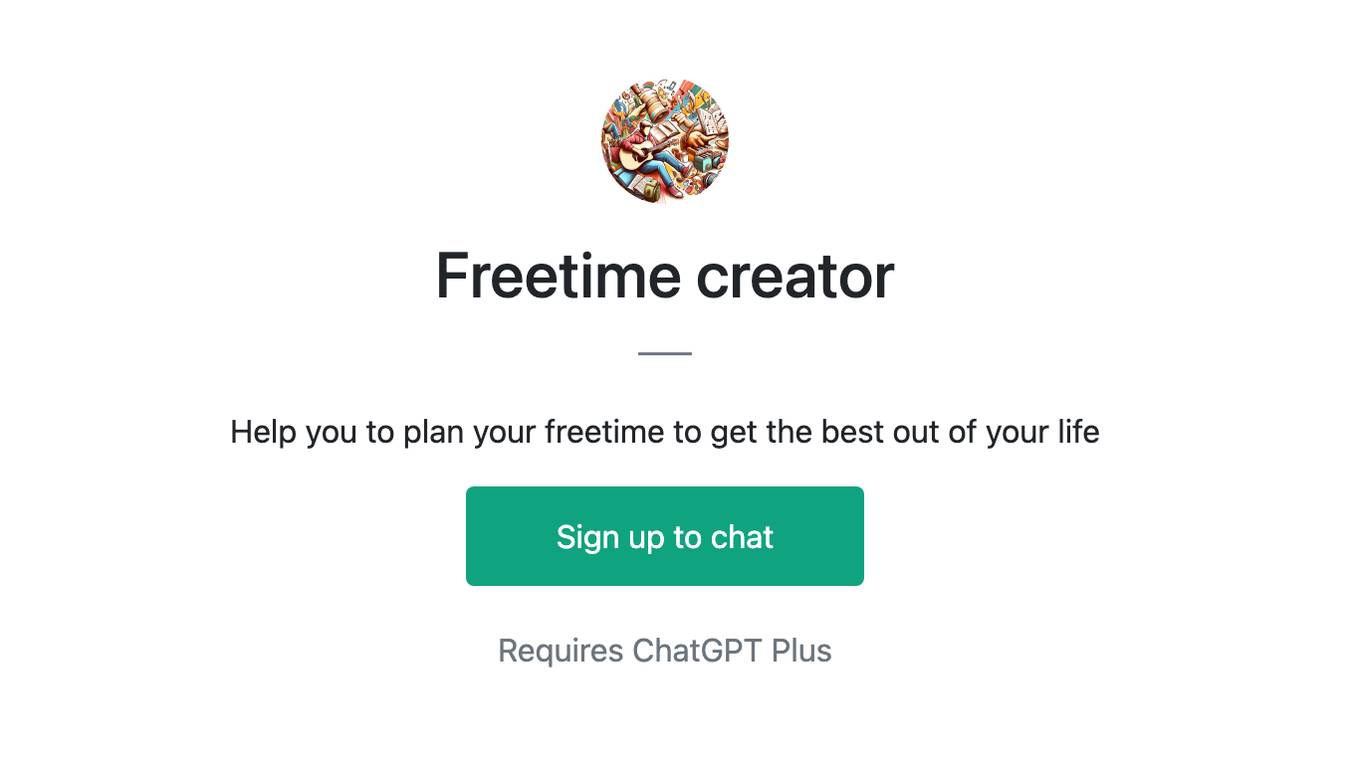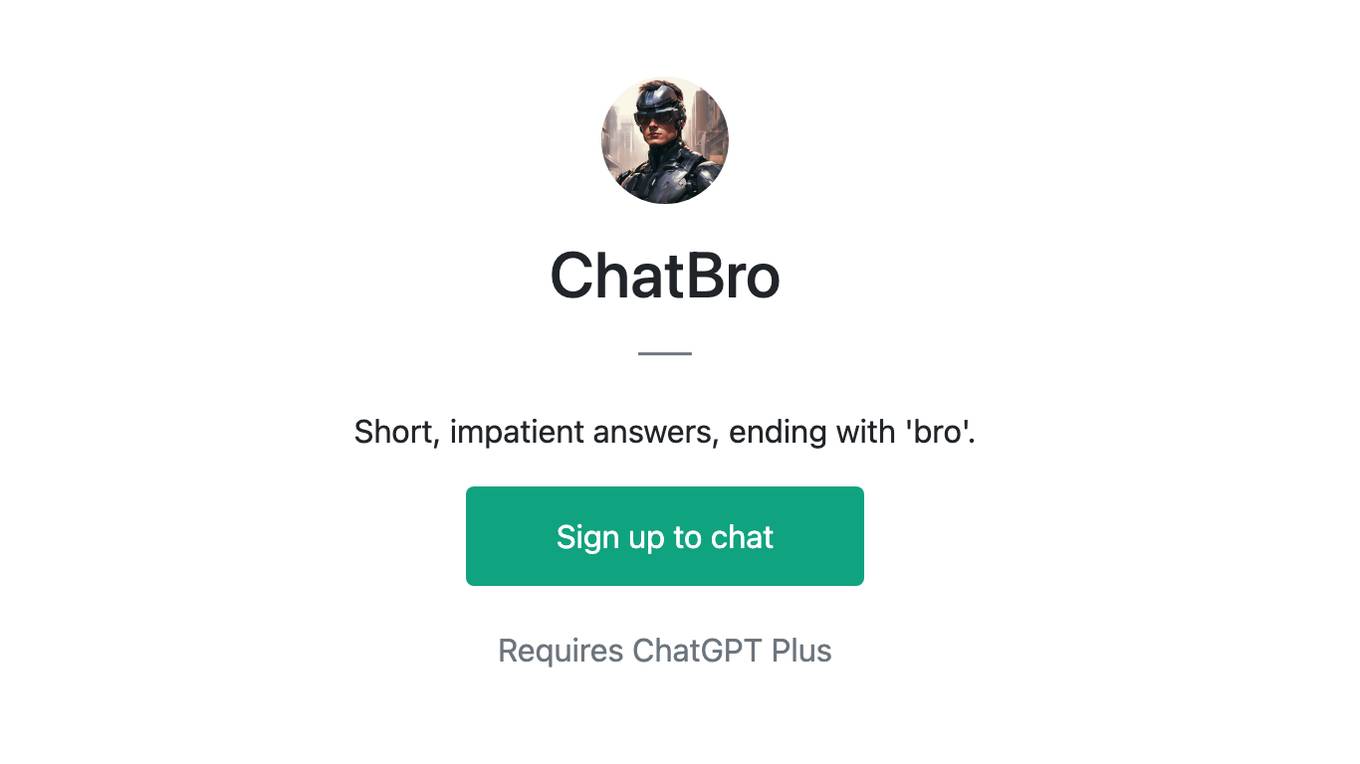Best AI tools for< Get To The Ski Resort >
20 - AI tool Sites
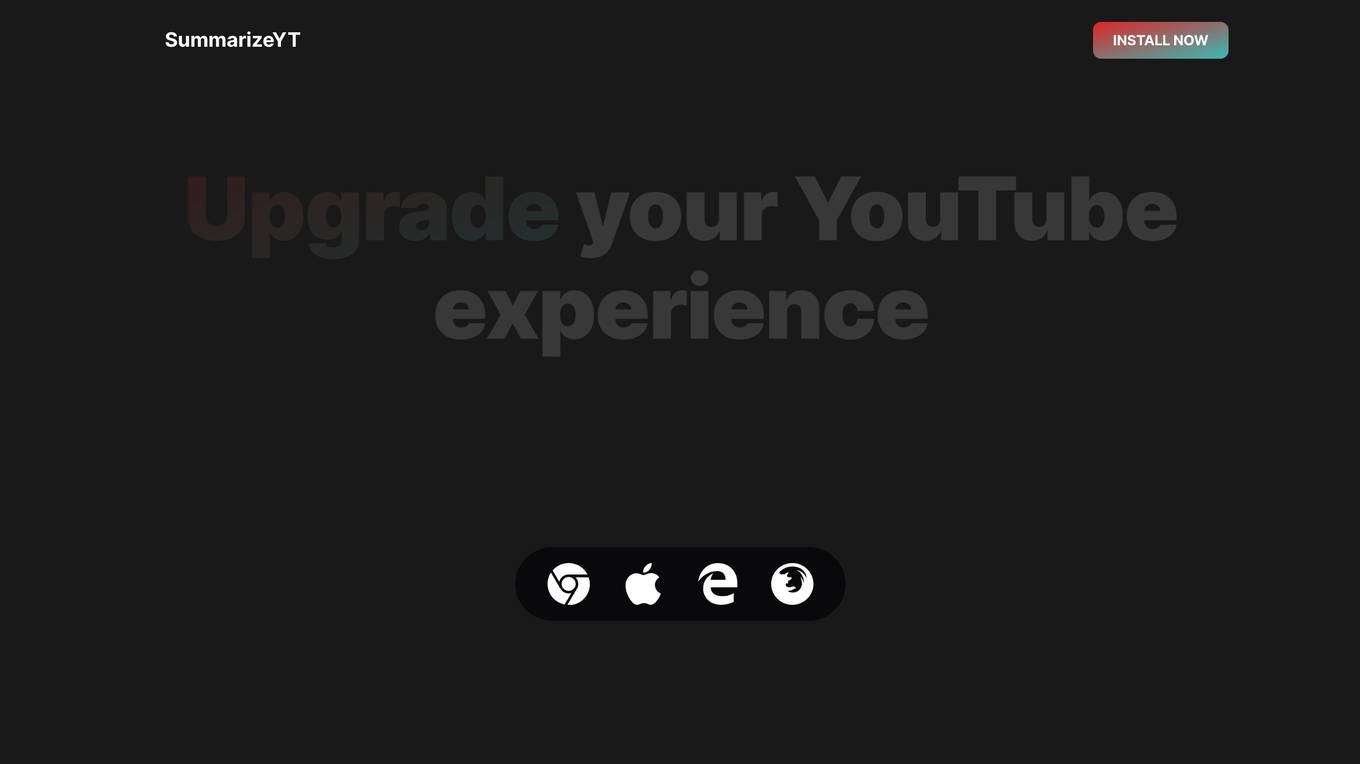
SummarizeYT
SummarizeYT is a YouTube summary tool that uses ChatGPT to generate summaries of YouTube videos. It is a free and easy-to-use tool that can help you save time and get the most out of your YouTube viewing experience.
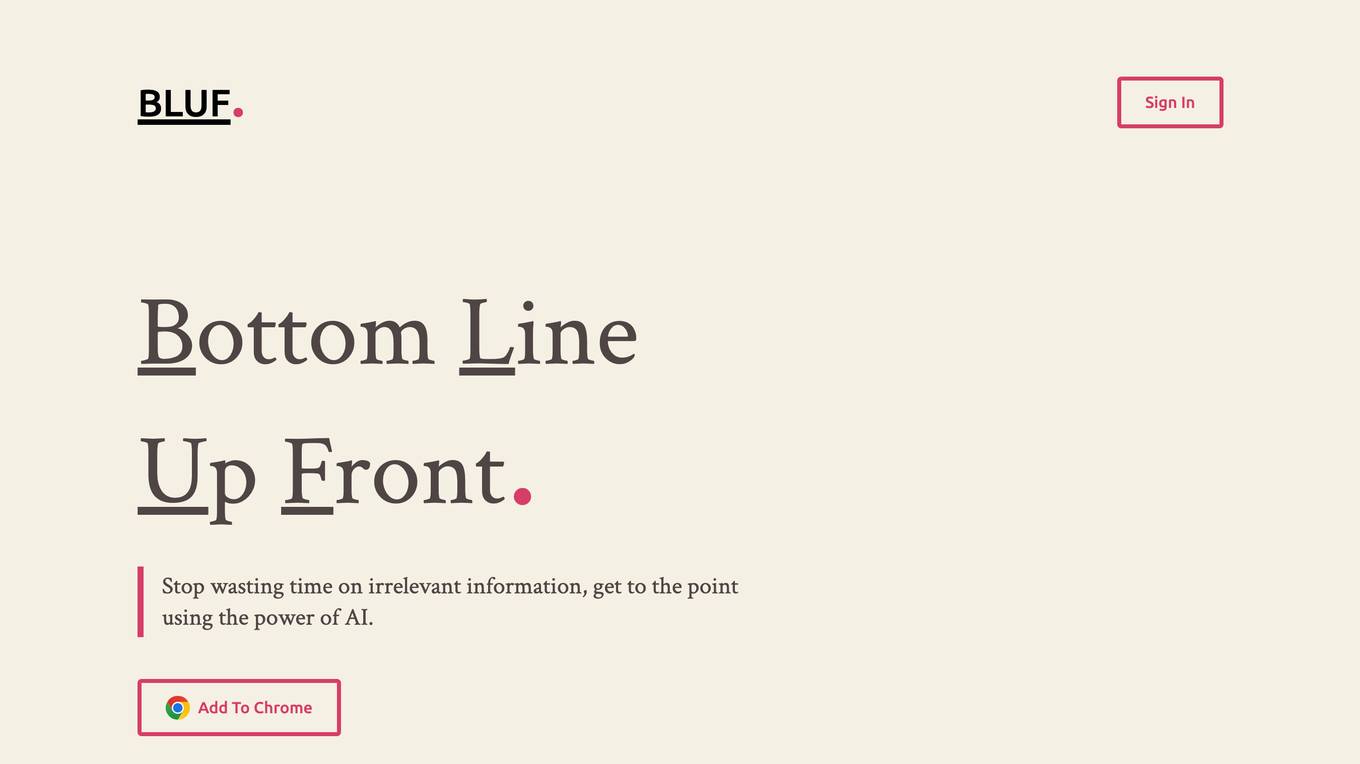
BLUF
BLUF is an AI-powered web page assistant that provides concise answers, summaries, and explanations of web pages. It helps users to quickly and easily get the information they need from any web page, without having to read through irrelevant or unnecessary content. BLUF is available as a browser extension for Chrome and Firefox, and it can be used to summarize or explain any web page with a single click.

Nobinge
Nobinge is a tool that helps you summarize and chat with YouTube videos. It uses artificial intelligence to bypass ads, sponsors, chit-chat, and get to the point. Nobinge also allows you to ask unlimited questions and get unlimited answers about the video you're watching. You can also listen to your summaries thanks to true-to-life voices in a variety of languages. Nobinge is a great tool for anyone who wants to save time and learn faster.
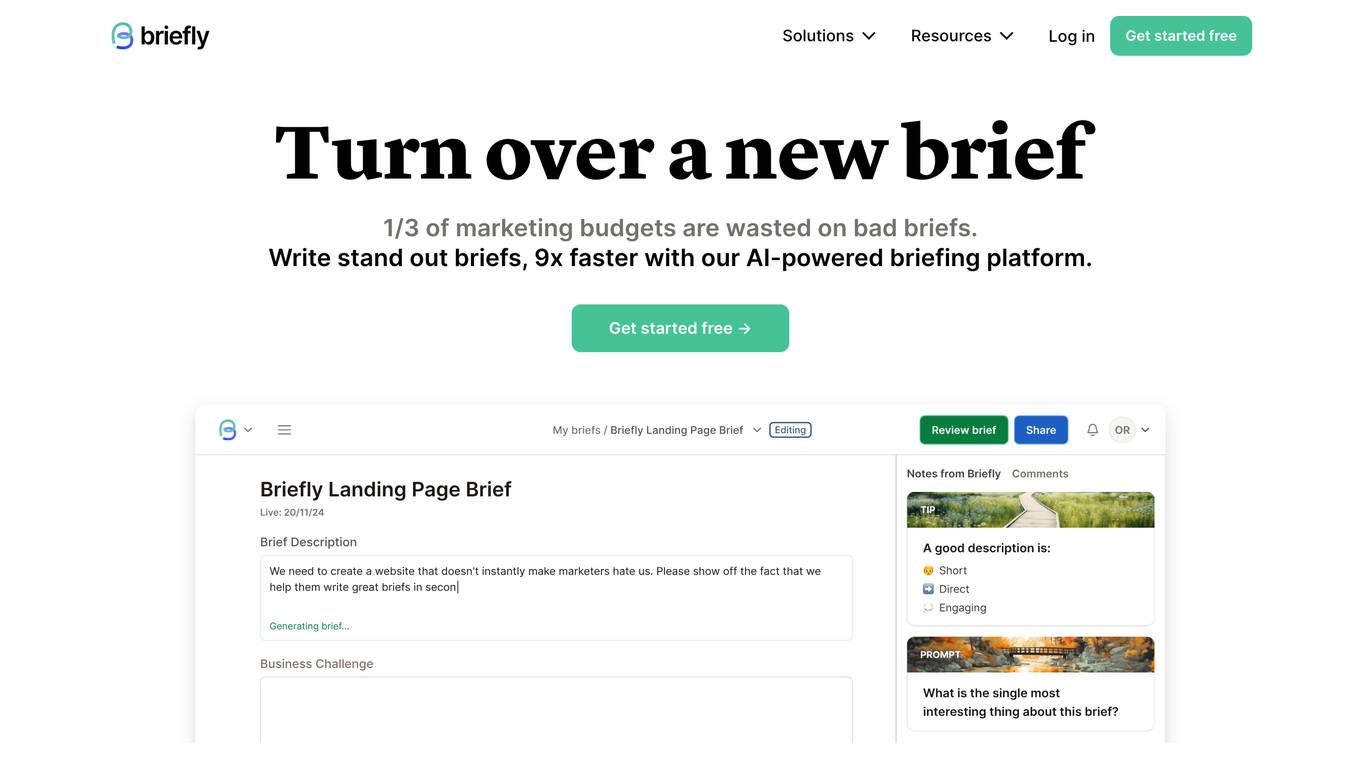
Briefly
Briefly is an AI-powered briefing platform that helps users write effective briefs faster. It offers features like FastDrafts for quick draft generation, tailored feedback for improvement, personalized effectiveness case studies for inspiration, and business intelligence engine for strategic alignment. The platform ensures compliance, security, and measurable ROI, with fine-grained admin controls and personalized onboarding. Briefly is trusted by marketers worldwide, from startups to Fortune 500 companies, to enhance their marketing strategies and productivity.
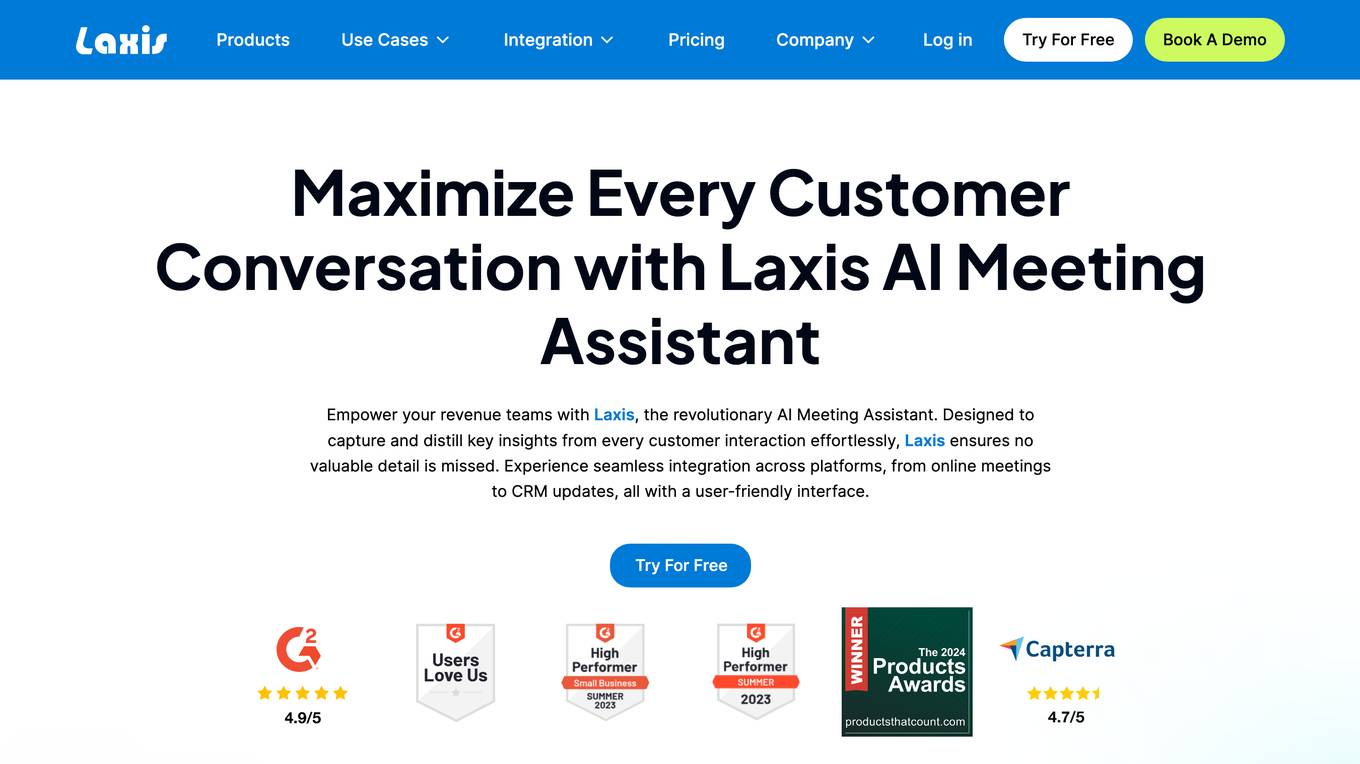
Laxis
Laxis is a revolutionary AI Meeting Assistant designed to capture and distill key insights from every customer interaction effortlessly. It seamlessly integrates across platforms, from online meetings to CRM updates, all with a user-friendly interface. Laxis empowers revenue teams to maximize every customer conversation, ensuring no valuable detail is missed. With Laxis, sales teams can close more deals with AI note-taking and insights from client conversations, business development teams can engage prospects more effectively and grow their business faster, marketing teams can repurpose podcasts, webinars, and meetings into engaging content with a single click, product and market researchers can conduct better research interviews that get to the "aha!" moment faster, project managers can remember key takeaways and status updates, and capture them for progress reports, and product and UX designers can capture and organize insights from their interviews and user research.
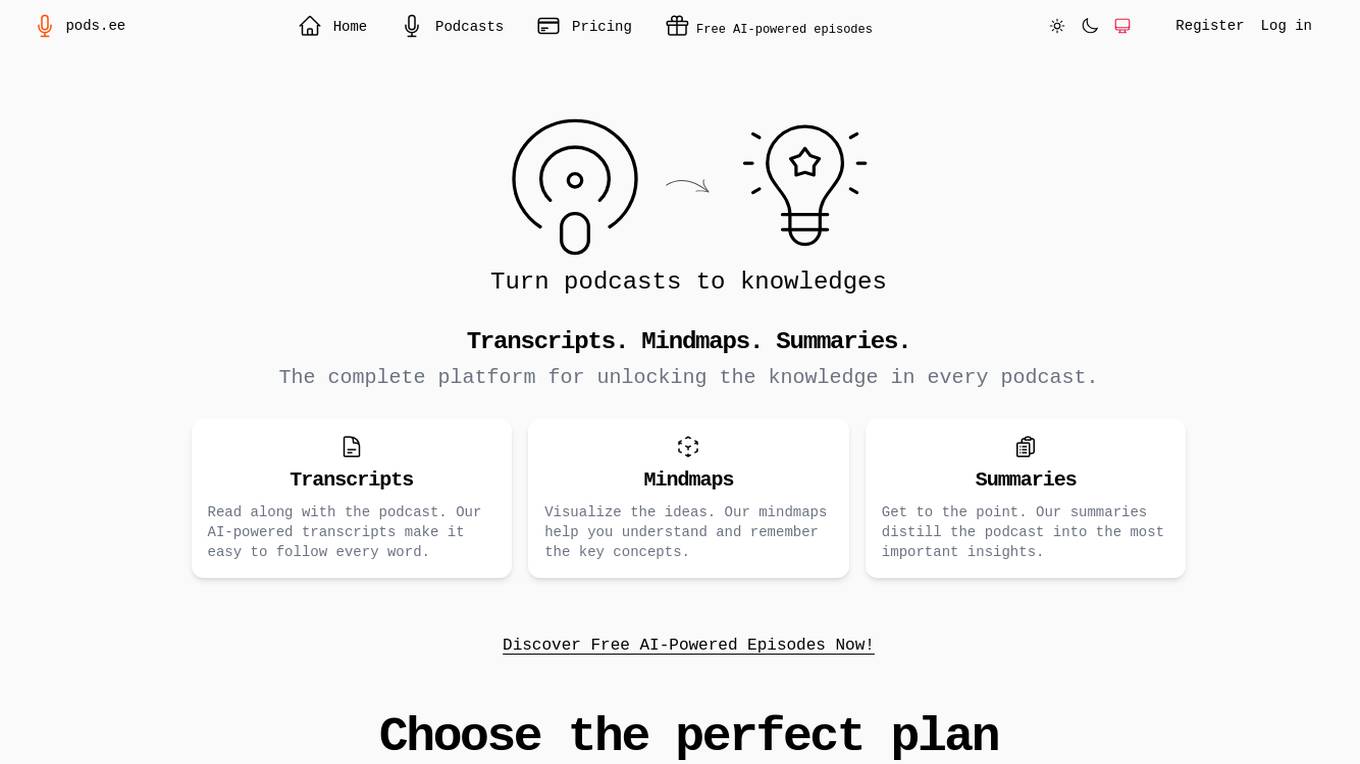
Pods.ee
Pods.ee is a comprehensive platform that utilizes AI to enhance the podcast listening experience. It offers a range of AI-powered features, including transcripts, mindmaps, summaries, and outlines, enabling users to easily access and understand the key insights from podcasts. With Pods.ee, users can read along with the podcast using AI-generated transcripts, visualize ideas through mindmaps, and get to the point with concise summaries. The platform provides free and paid subscription plans, catering to both individuals and podcast enthusiasts.
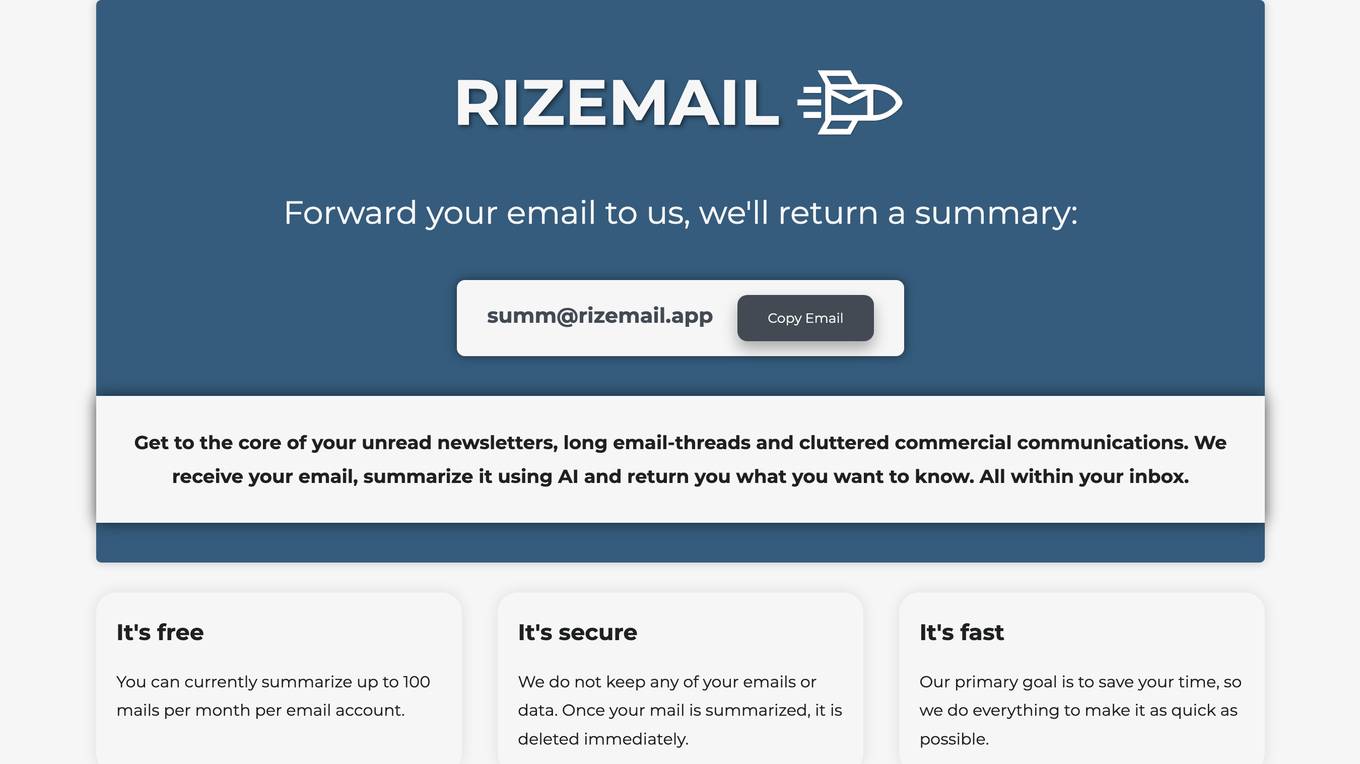
Rizemail
Rizemail is an AI-powered email summarization tool that helps users quickly get to the core of their unread newsletters, long email threads, and cluttered commercial communications. By forwarding an email to [email protected], the tool uses AI to summarize the content and returns the key information you need, all within your inbox. Rizemail aims to save users time by providing fast and secure email summarization services, with a focus on user privacy and convenience.
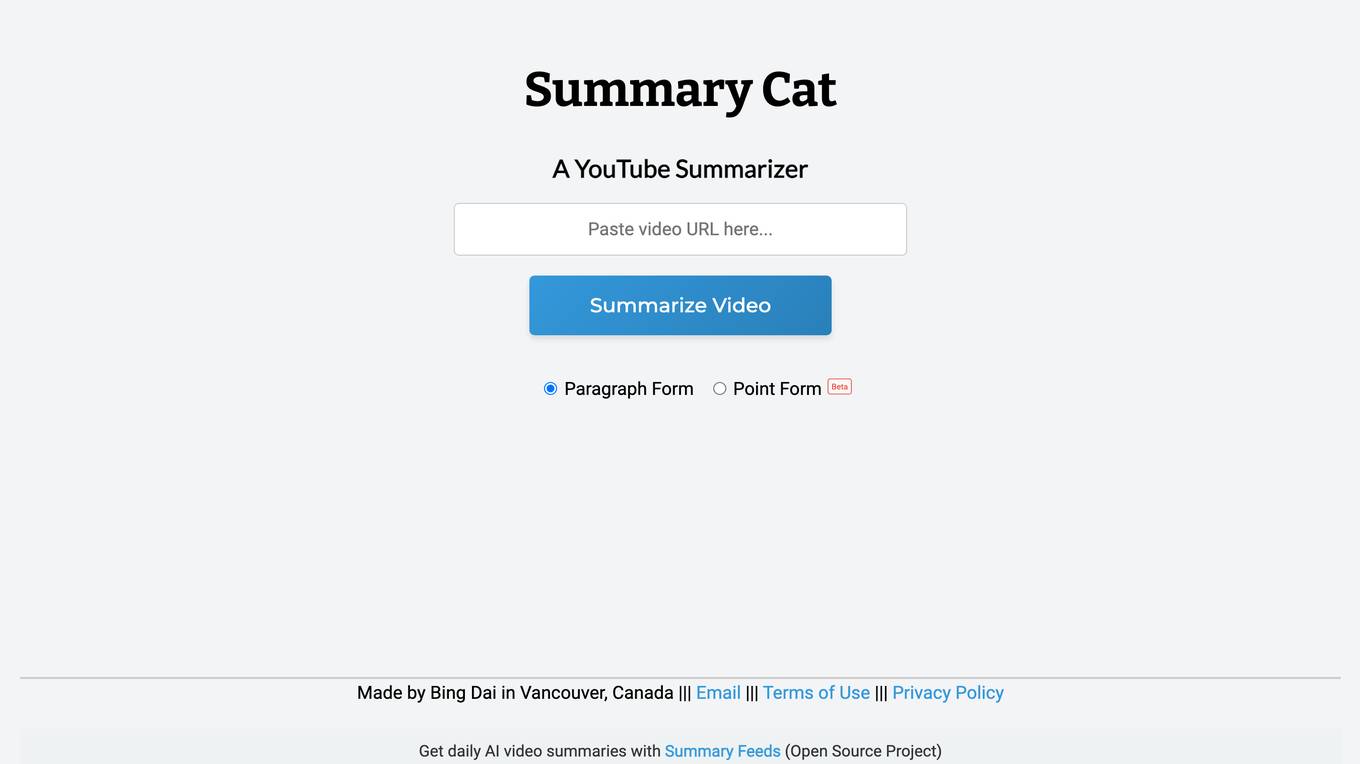
Summary Cat
Summary Cat is a YouTube summarizer tool created by Bing Dai in Vancouver, Canada. It allows users to summarize videos and paragraphs into point form. The tool is designed to help users quickly grasp the key points of lengthy content, making it easier to digest and understand. With a user-friendly interface, Summary Cat is a handy tool for anyone looking to save time and get to the core of the information.

InboxChat
InboxChat is an AI-powered email management tool that helps users sort, chat, and summarize their emails. It integrates with Google Accounts and offers a range of features to streamline email workflow, including: - Chat with Your Inbox: Draft emails, summarize lengthy threads, and organize data in tables. - Automate your workflow: Create automations to organize incoming emails, extract important data, create tasks, and prepare automated responses. - Quick skim: See emails at a glance with concise, customizable summaries. - Thread Summary: Get to-the-point summaries of all email threads. - Email Summaries: Quickly skim through emails. - Contact History: Access a summarized timeline of interactions with each contact. - Smart Contact Groups: Auto-tag contacts into manageable groups.
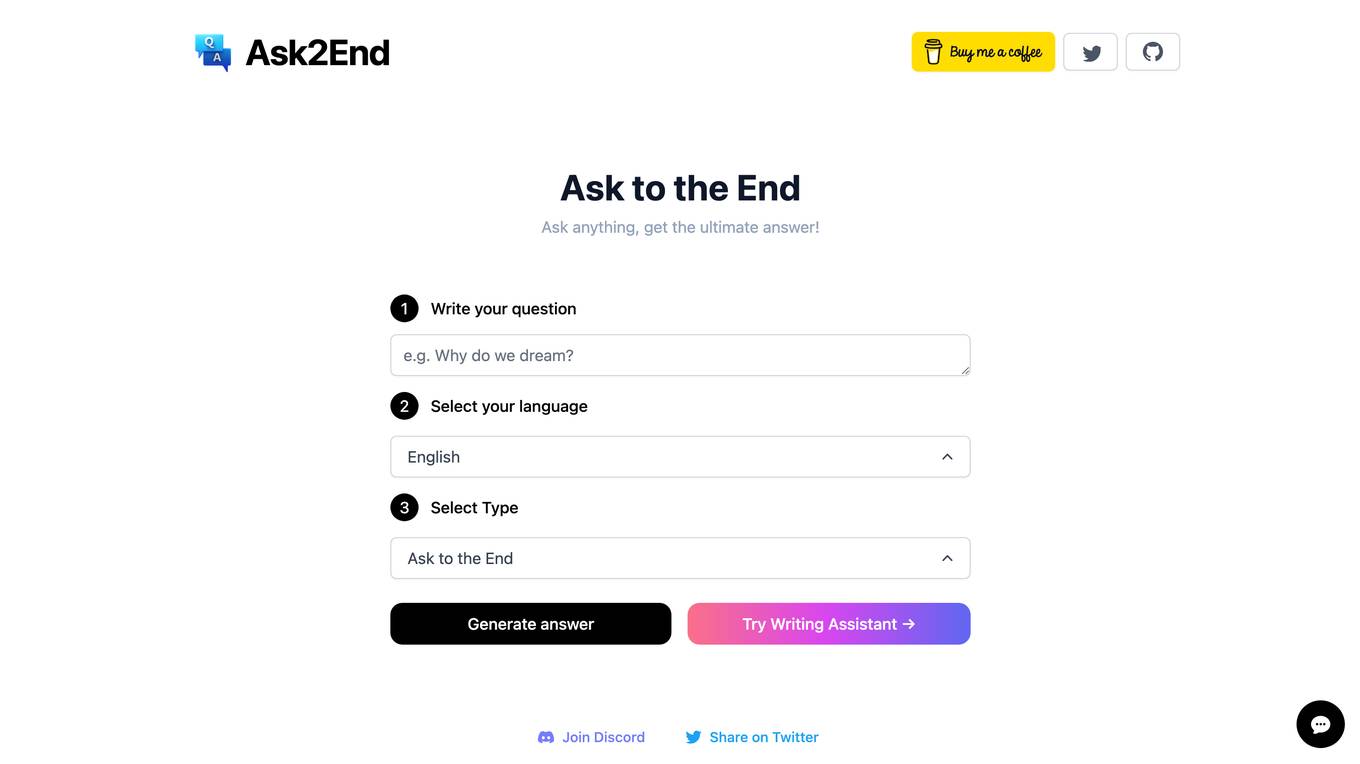
Ask2End
Ask2End is an AI-powered question-answering tool that provides comprehensive and accurate answers to any question you may have. It is designed to be user-friendly and accessible, allowing you to get the information you need quickly and easily.
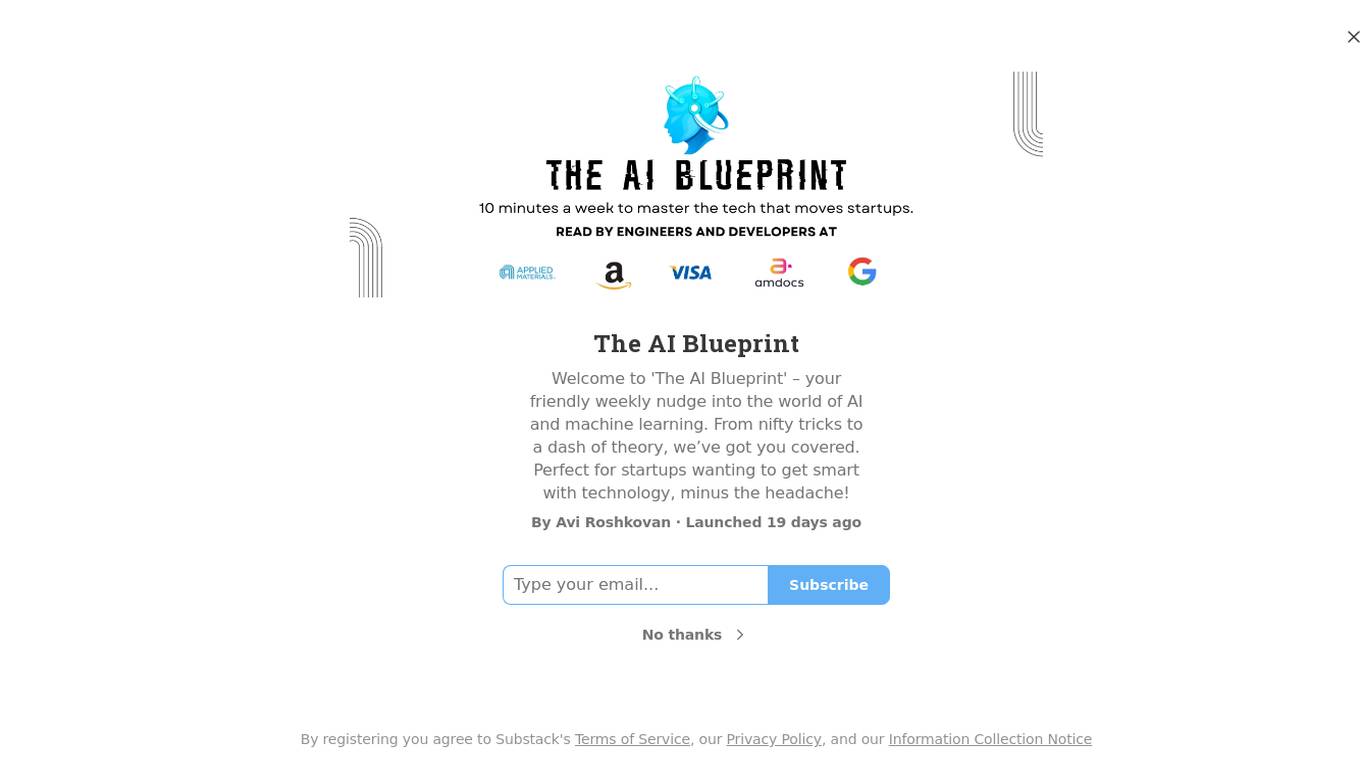
The AI Blueprint
The AI Blueprint is a weekly newsletter that provides insights and updates on the world of AI and machine learning. Created by Avi Roshkovan, the newsletter covers a range of topics from practical tips to theoretical concepts, making it a valuable resource for startups looking to leverage technology effectively. With a focus on simplicity and practicality, The AI Blueprint aims to demystify AI and make it accessible to a wider audience.

MikeAI
MikeAI is a personalized AI fitness coach designed to help users achieve their fitness goals. It provides personalized meal plans, workout plans, recipes, and access to FitnessGPT, an AI chatbot that can answer fitness-related questions. MikeAI is suitable for both beginners and experienced fitness enthusiasts looking to take their training to the next level.
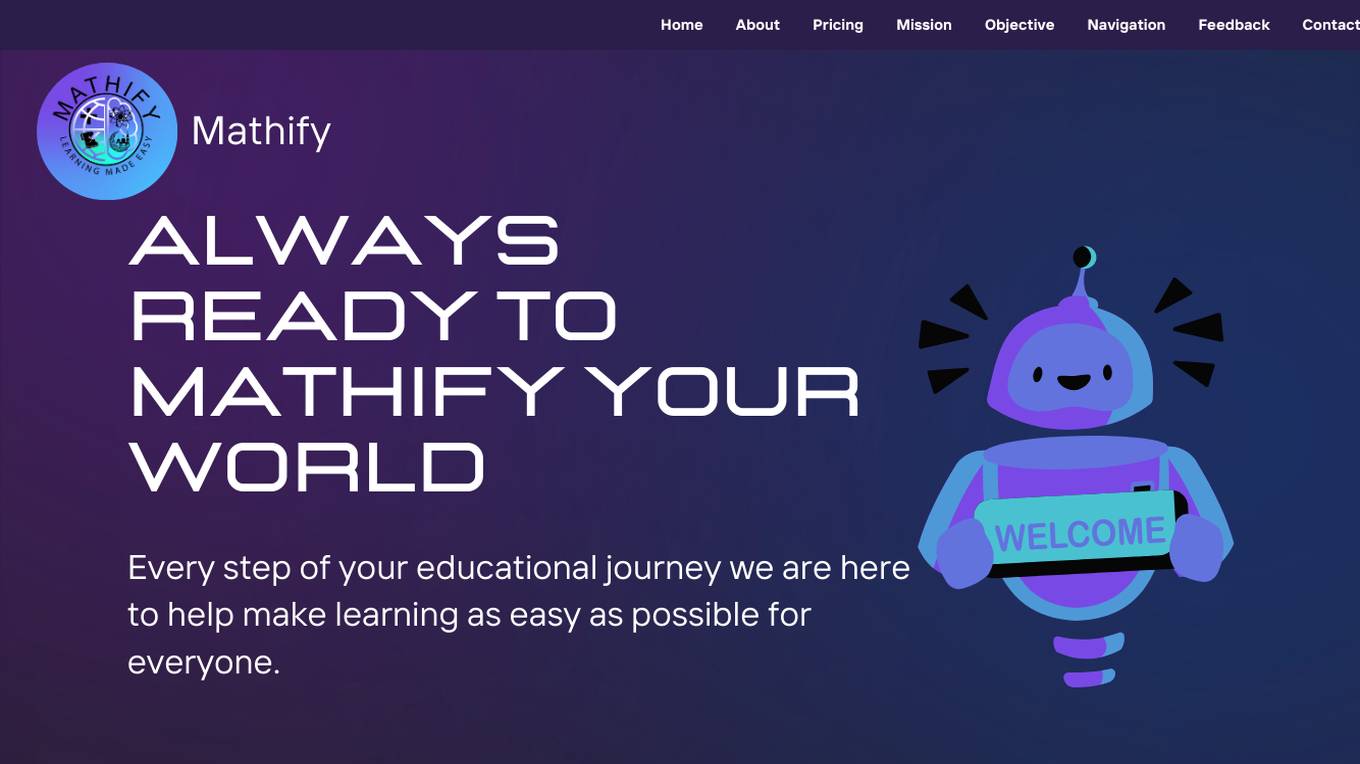
Mathify
Mathify is an AI-powered educational platform that aims to make learning accessible, engaging, and rewarding for students across various subjects. With a focus on simplifying complex concepts and personalizing learning experiences, Mathify offers interactive adventures in Mathematics, Science, History, Geography, Languages, Literature, and Social Studies. The platform leverages AI technology to provide tailored support to students, helping them conquer challenges and build a strong foundation in each subject. Mathify's mission is to ignite a passion for learning and unlock the academic potential of every learner.
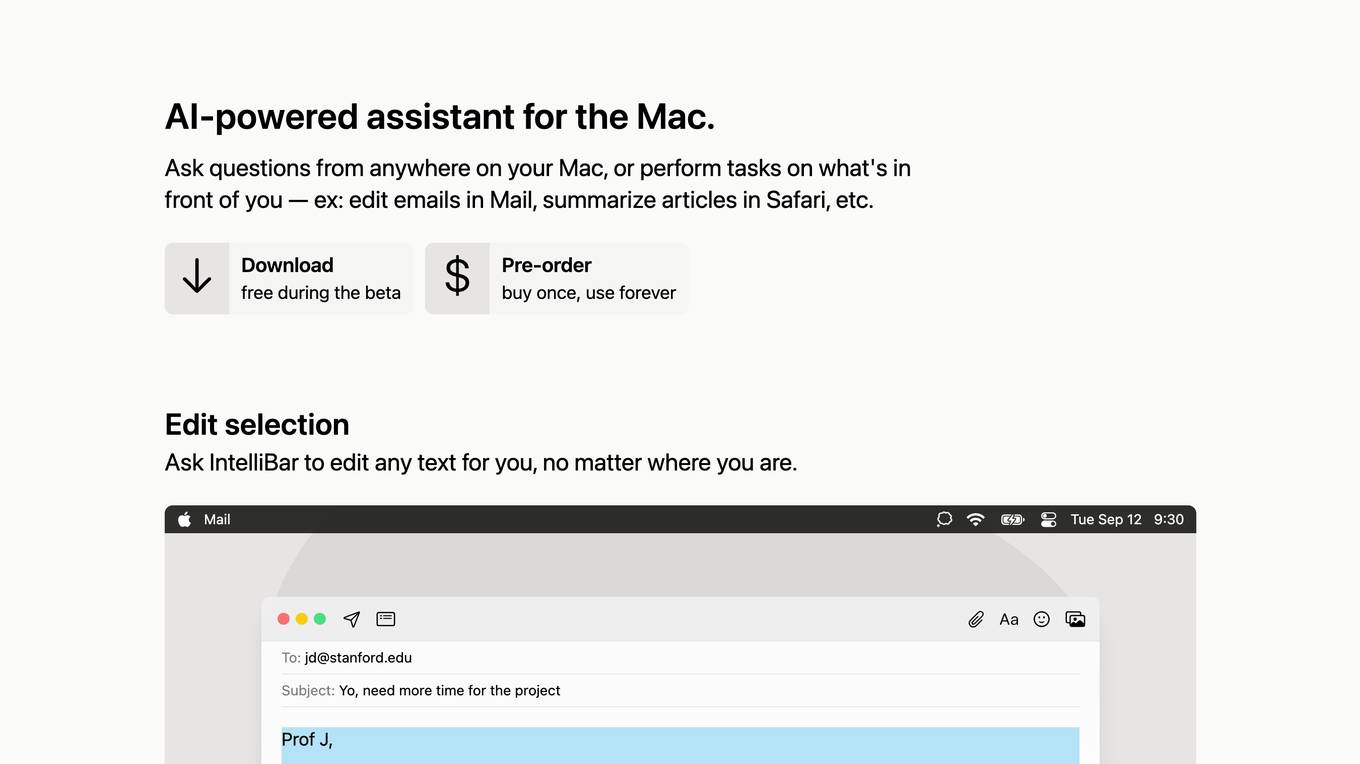
IntelliBar
IntelliBar is an AI-powered assistant for Mac that allows users to ask questions, perform tasks, and edit text from anywhere on their Mac. It is optimized for keyboard use and supports GPT-4, DALL-E, TTS, and Whispers models. IntelliBar is secure by design and sends prompts directly to the OpenAI API.
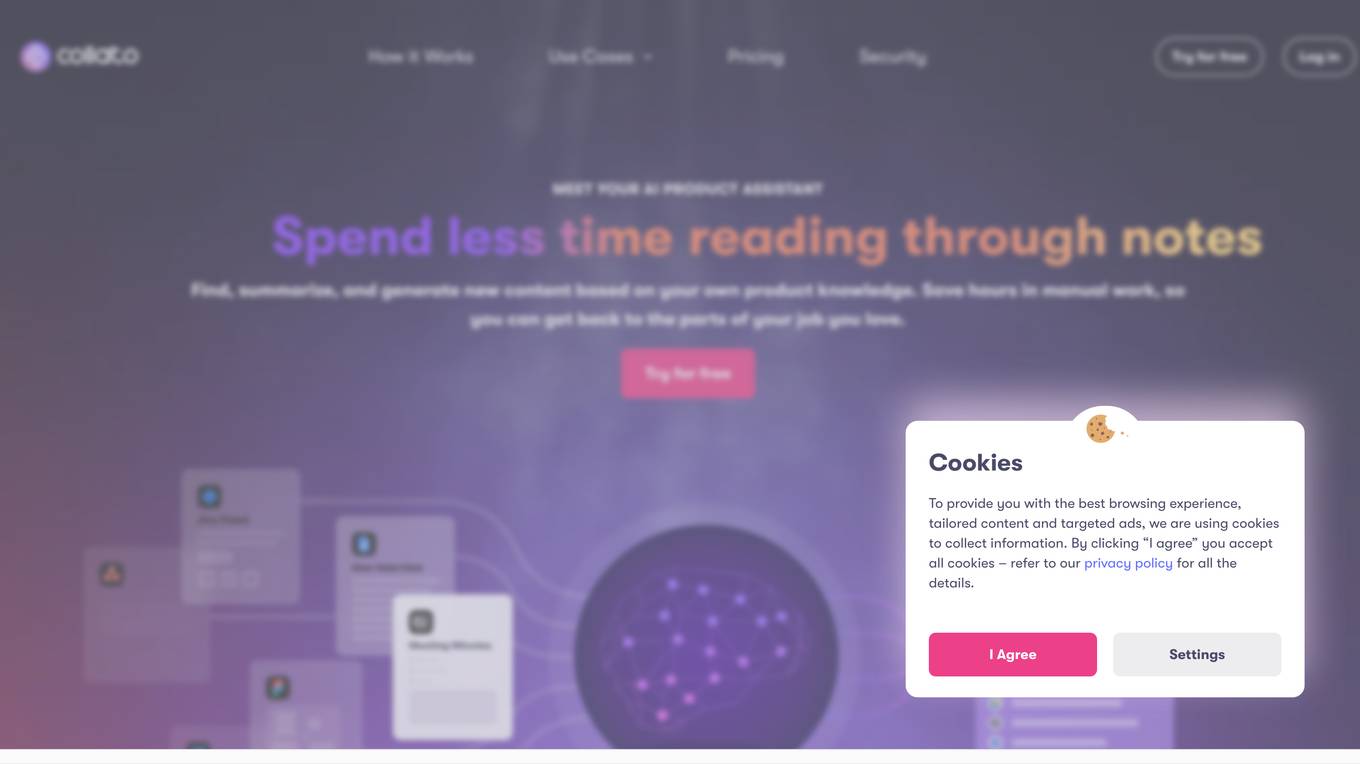
Collato
Collato is an AI assistant designed to help product teams save time on writing documents, answering questions, and generating new content. It can find, summarize, and generate new content based on your own product knowledge, saving you hours in manual work. Collato is also self-hosted, so you can keep your data private and secure.
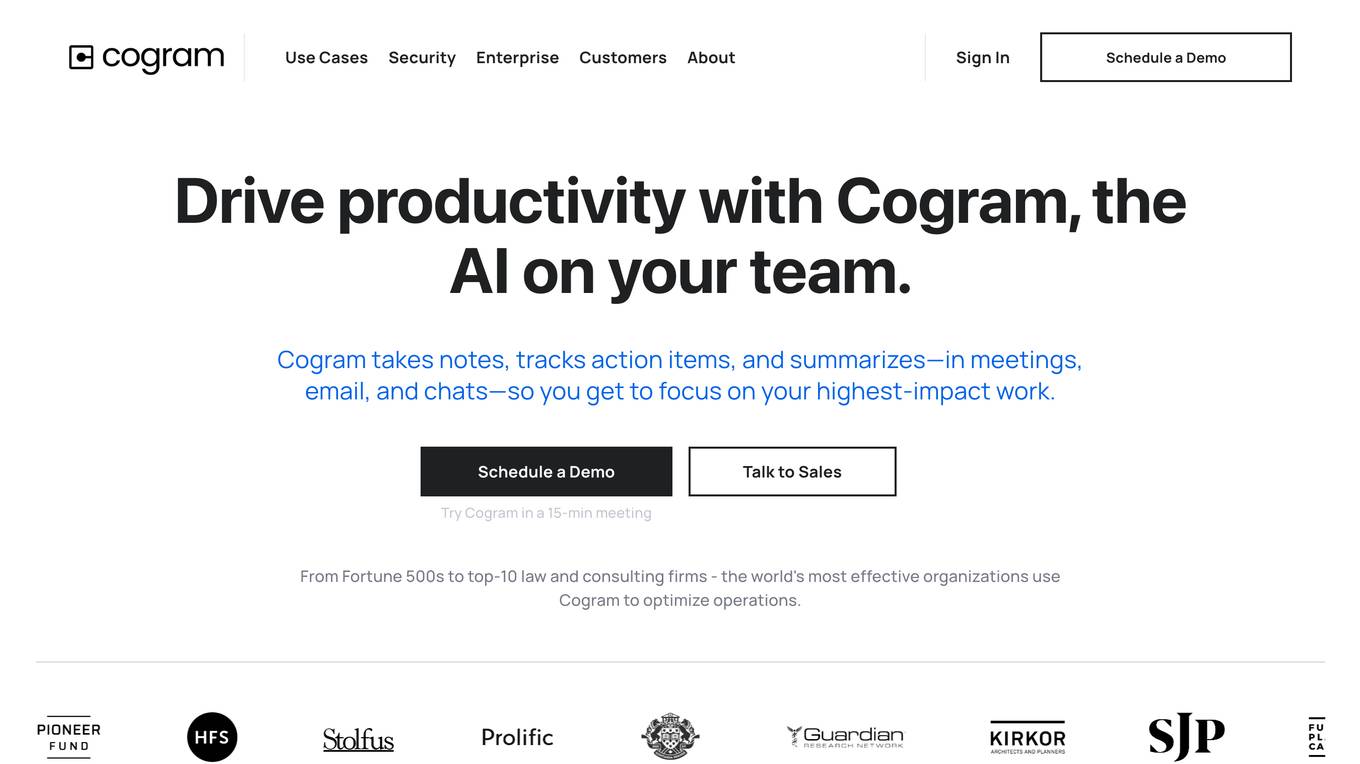
Cogram
Cogram is an AI-powered tool that helps teams take notes, track action items, and summarize meetings, emails, and chats. It is designed to help users focus on their highest-impact work by automating the busywork of note-taking and follow-ups. Cogram integrates with popular video conferencing tools such as Zoom, Microsoft Teams, and Google Meet, and can be customized to meet the specific needs of each team. With Cogram, teams can save time, improve communication, and make better decisions.
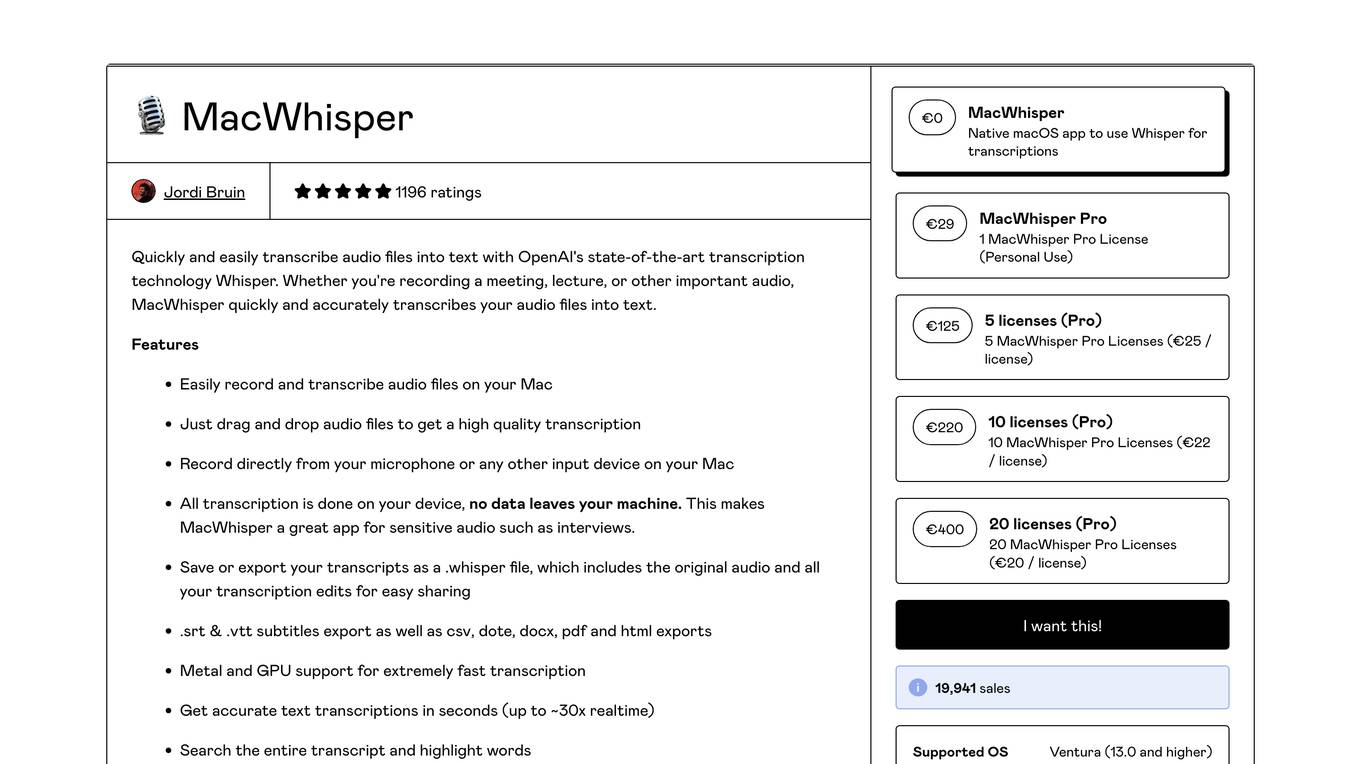
MacWhisper
MacWhisper is a native macOS application that utilizes OpenAI's Whisper technology for transcribing audio files into text. It offers a user-friendly interface for recording, transcribing, and editing audio, making it suitable for various use cases such as transcribing meetings, lectures, interviews, and podcasts. The application is designed to protect user privacy by performing all transcriptions locally on the device, ensuring that no data leaves the user's machine.
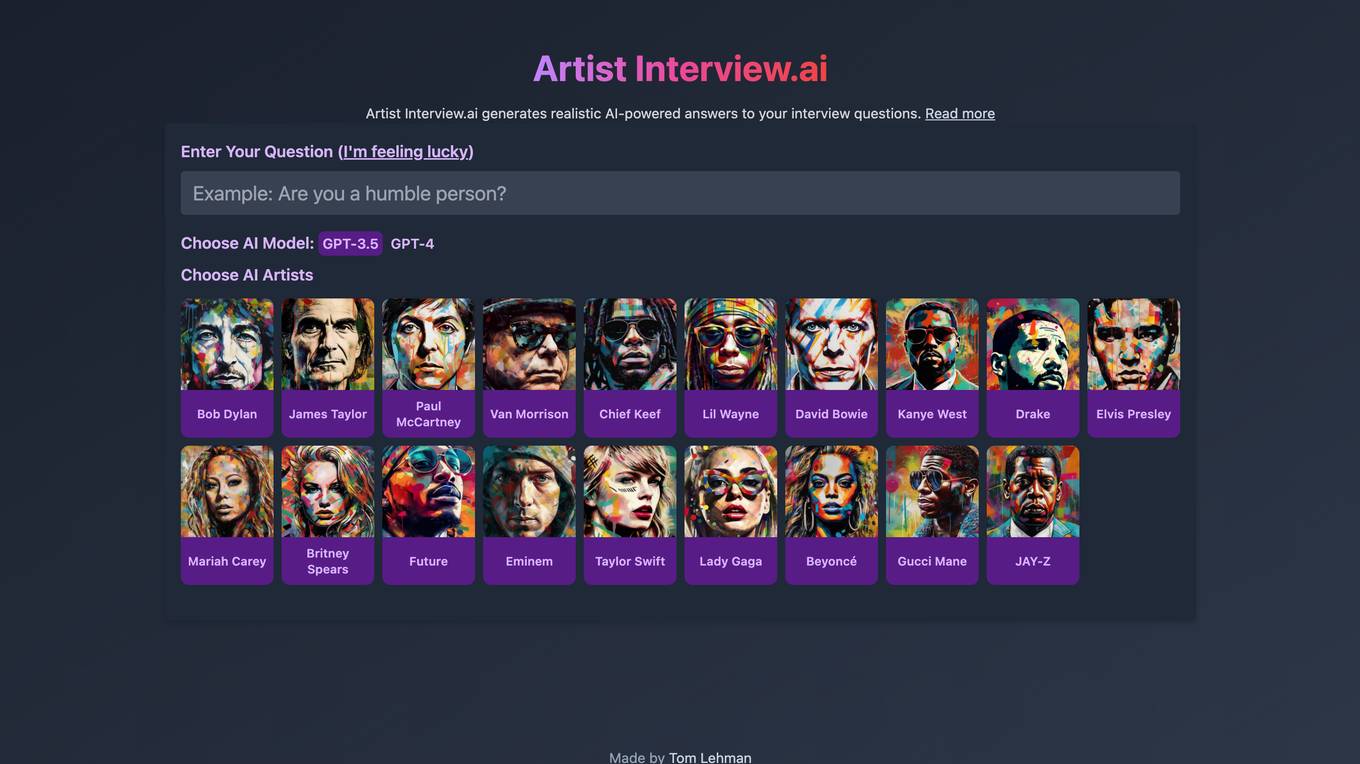
Application Error
The website is experiencing an application error, which indicates a technical issue preventing the proper functioning of the application. Users encountering this message may be unable to access the intended features or content of the website due to the error. Application errors can occur for various reasons, such as software bugs, server issues, or connectivity problems. Resolving the error typically requires technical expertise to identify and address the underlying cause.
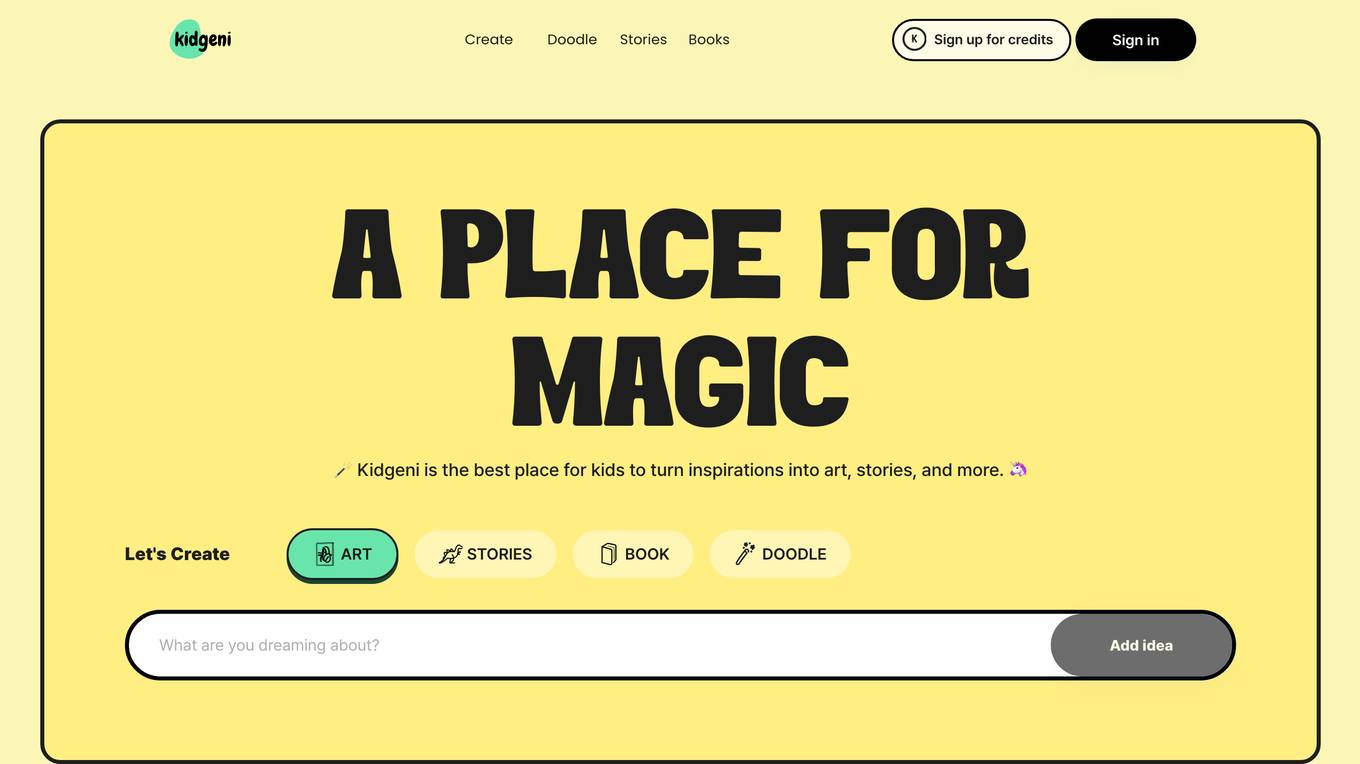
Kidgeni
Kidgeni is an AI tool designed as a creative space for kids to play with AI. It offers features such as creating art, turning doodles into masterpieces, generating stories, and publishing books. Kidgeni aims to inspire children to explore art, storytelling, and self-expression, fostering creativity and confidence in young minds. The application offers various subscription plans tailored to different needs, allowing users to access unlimited credits for creating art and stories. With Kidgeni, children can unleash their imagination and bring their ideas to life through a fun and engaging platform.

Retouch4me
Retouch4me is an AI-powered retouching application designed for professionals and accessible to everyone. It offers a range of AI retouching plugins and tools for Photoshop, allowing users to effortlessly enhance and transform images with stunning results. The application provides features like face makeup assistance, skin defect fixes, teeth whitening, and more. With Retouch4me, users can retouch photos and videos quickly and efficiently, saving time and achieving high-quality results. The AI technology used in Retouch4me ensures that the original skin texture and natural look are preserved, making it a valuable tool for photographers, designers, and anyone looking to enhance their images.
0 - Open Source AI Tools
20 - OpenAI Gpts

Wertu - Ski Trip Planner
Find the ultimate ski trip - resort, flight, accommodation, transfer, ski pass, and more⛷️🏂
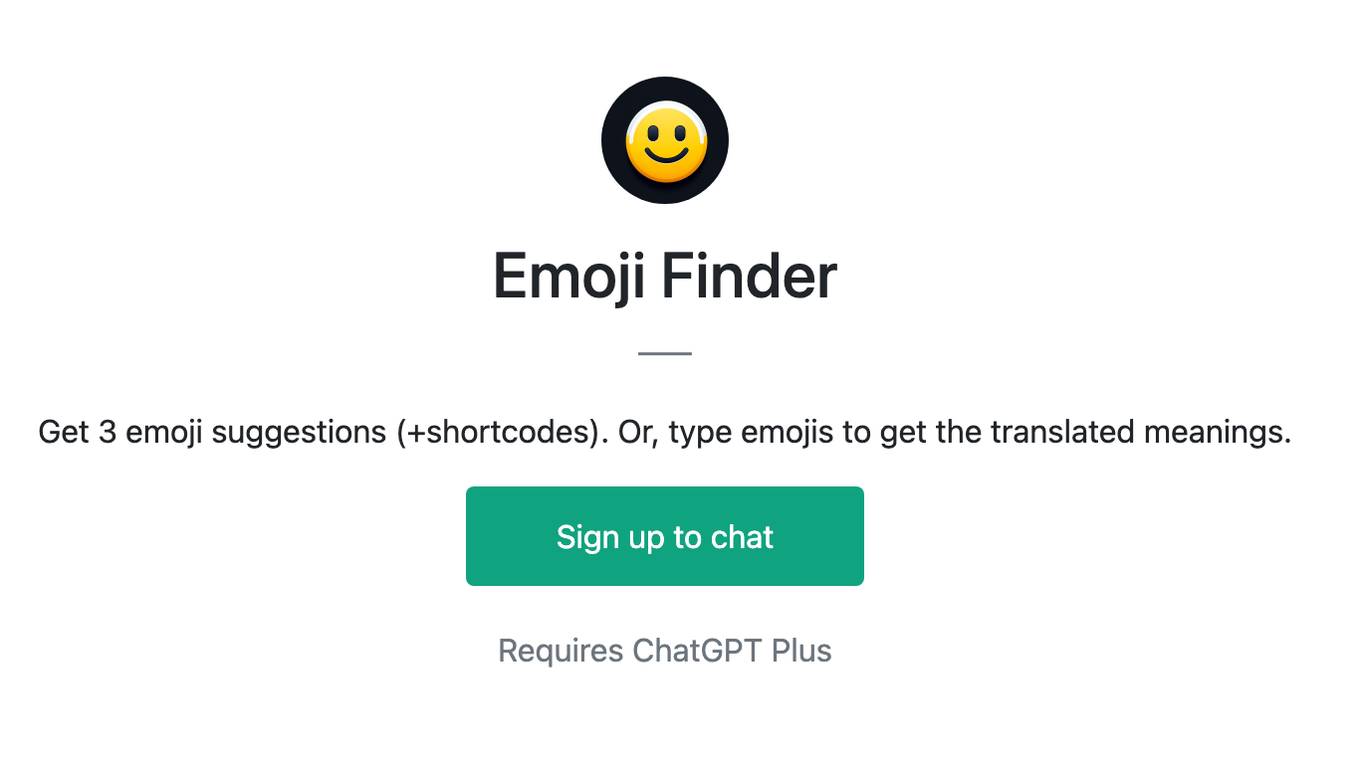
Emoji Finder
Get 3 emoji suggestions (+shortcodes). Or, type emojis to get the translated meanings.
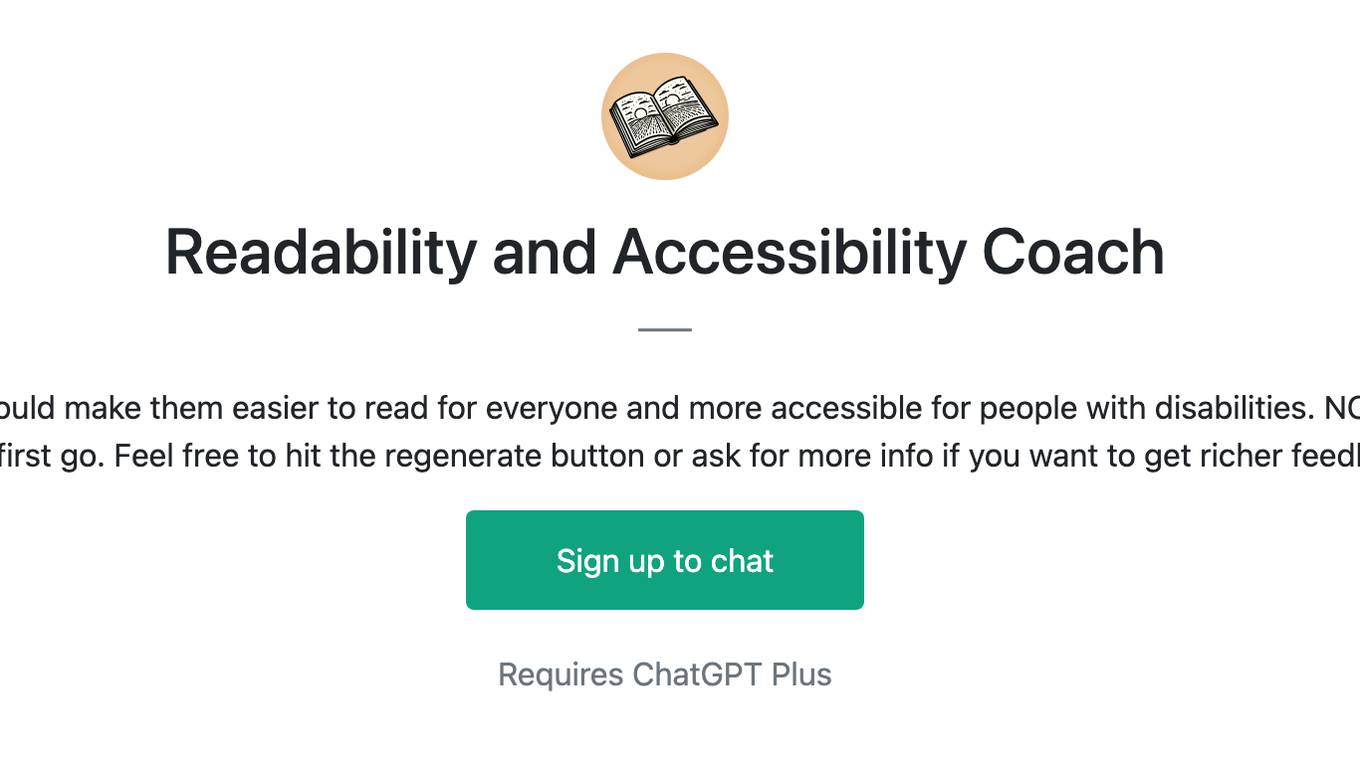
Readability and Accessibility Coach
Ask about your documents to see how you could make them easier to read for everyone and more accessible for people with disabilities. NOTE: It does not always get everything right on the first go. Feel free to hit the regenerate button or ask for more info if you want to get richer feedback.
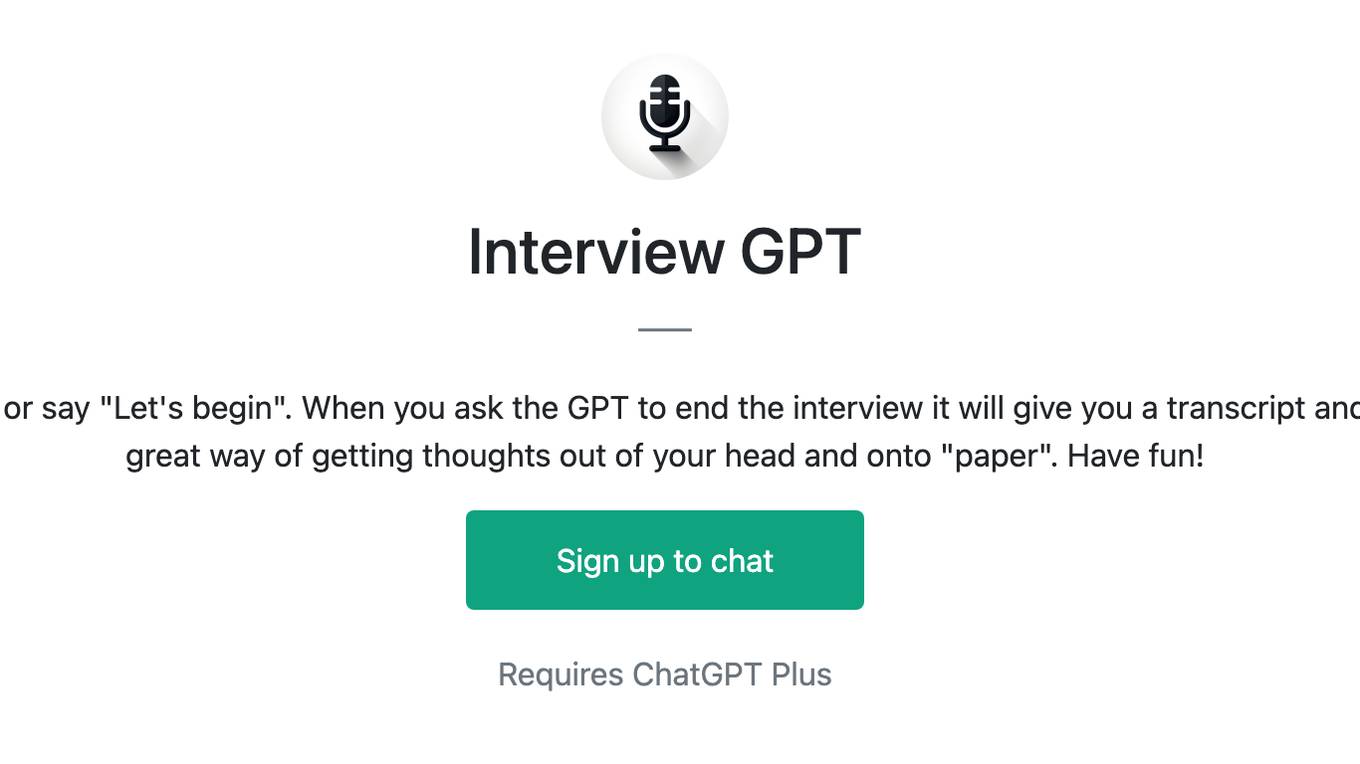
Interview GPT
Automated interviews. To get started, type or say "Let's begin". When you ask the GPT to end the interview it will give you a transcript and summary of your conversation. This is a great way of getting thoughts out of your head and onto "paper". Have fun!
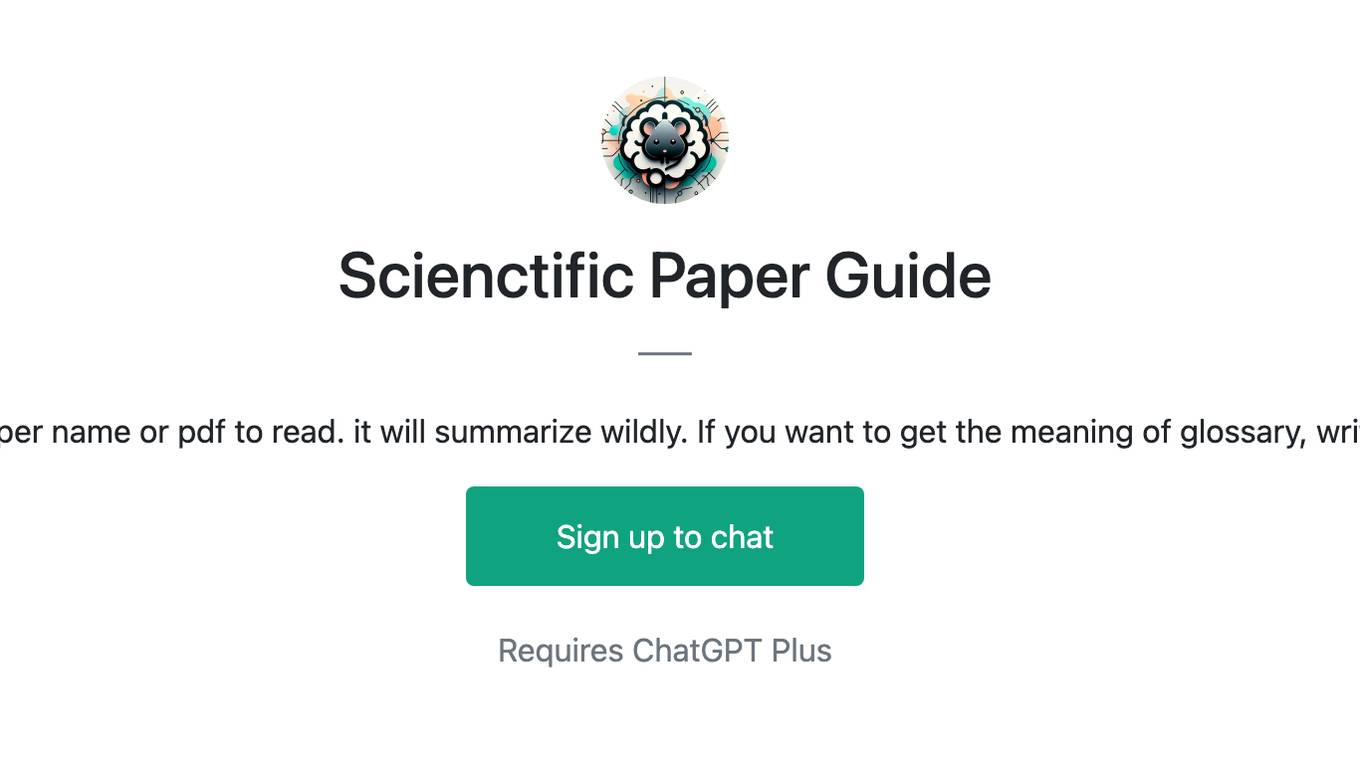
Scienctific Paper Guide
Put paper name or pdf to read. it will summarize wildly. If you want to get the meaning of glossary, write G.
PragmaPilot - A Generative AI Use Case Generator
Show me your job description or just describe what you do professionally, and I'll help you identify high value use cases for AI in your day-to-day work. I'll also coach you on simple techniques to get the best out of ChatGPT.
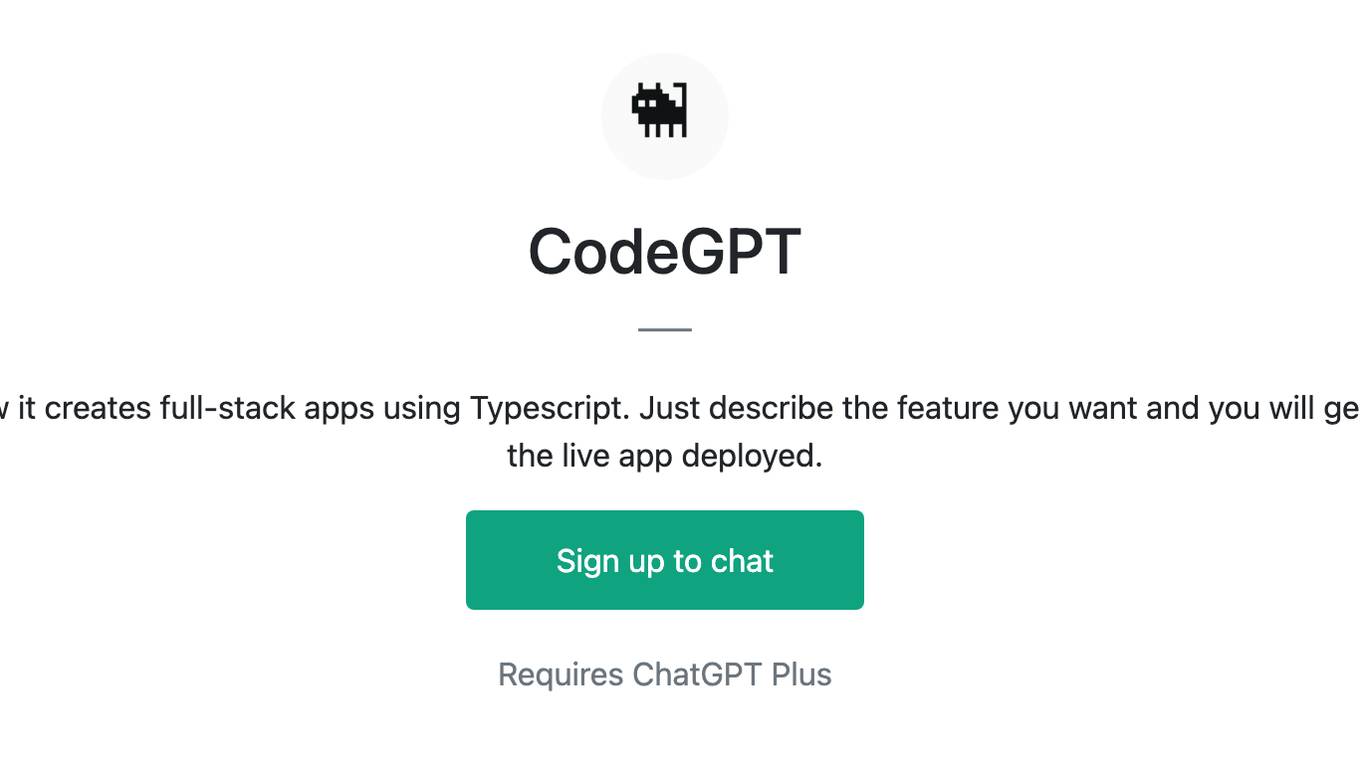
CodeGPT
This GPT can generate code for you. For now it creates full-stack apps using Typescript. Just describe the feature you want and you will get a link to the Github code pull request and the live app deployed.
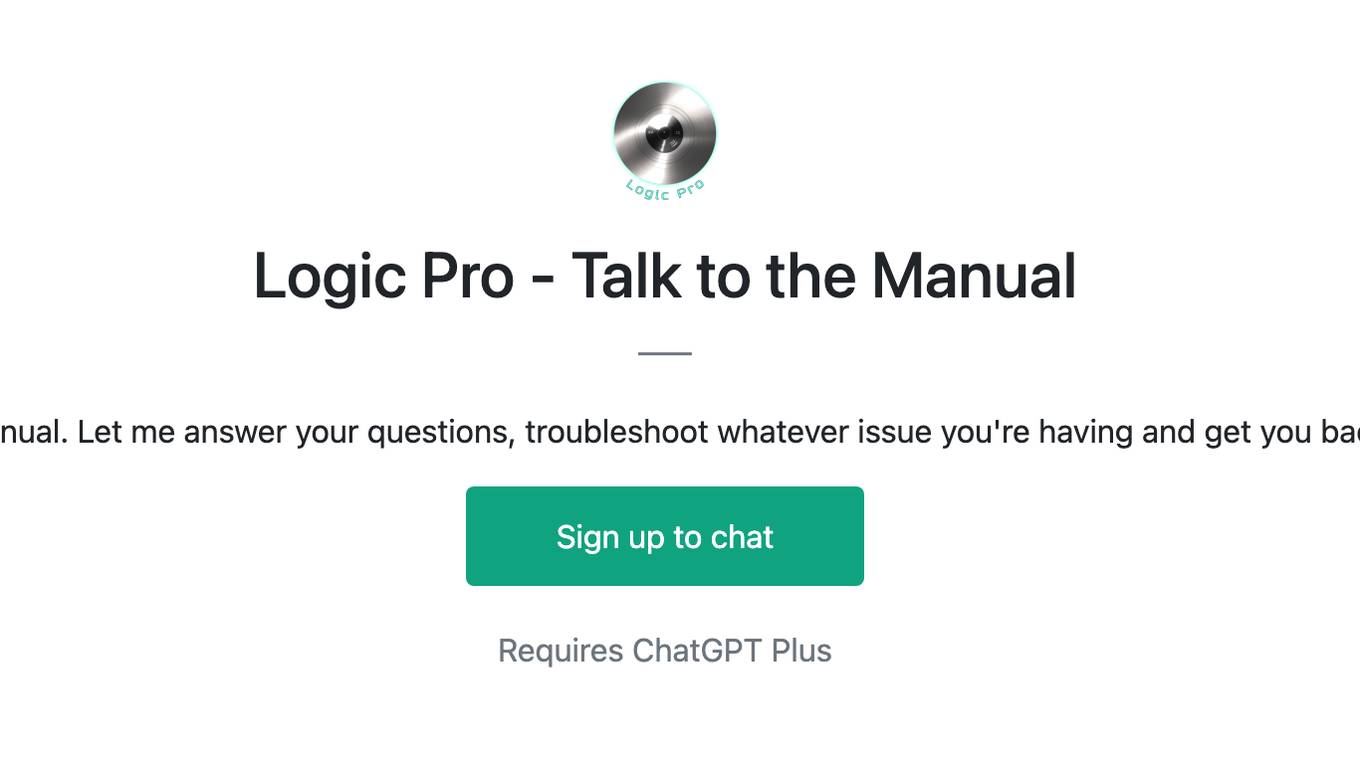
Logic Pro - Talk to the Manual
I'm Logic Pro X's manual. Let me answer your questions, troubleshoot whatever issue you're having and get you back into the groove!
